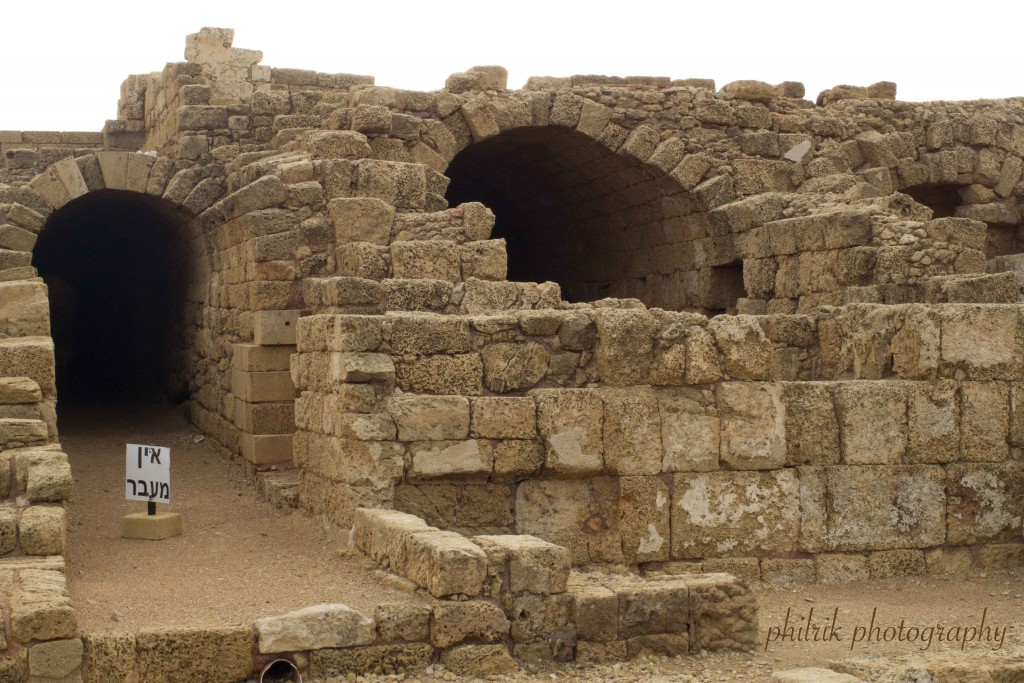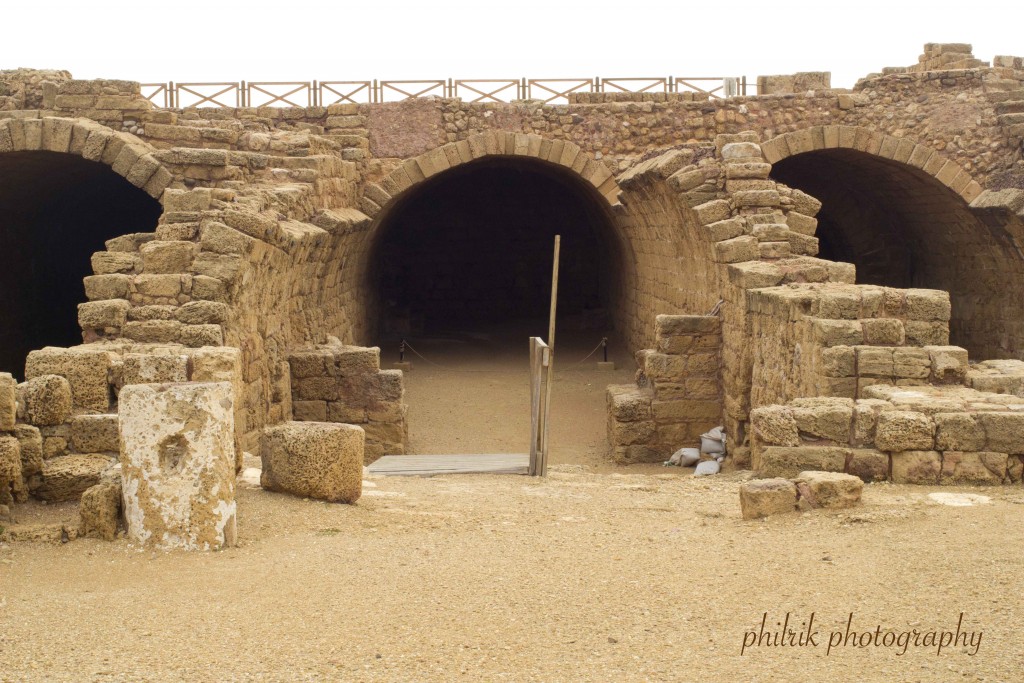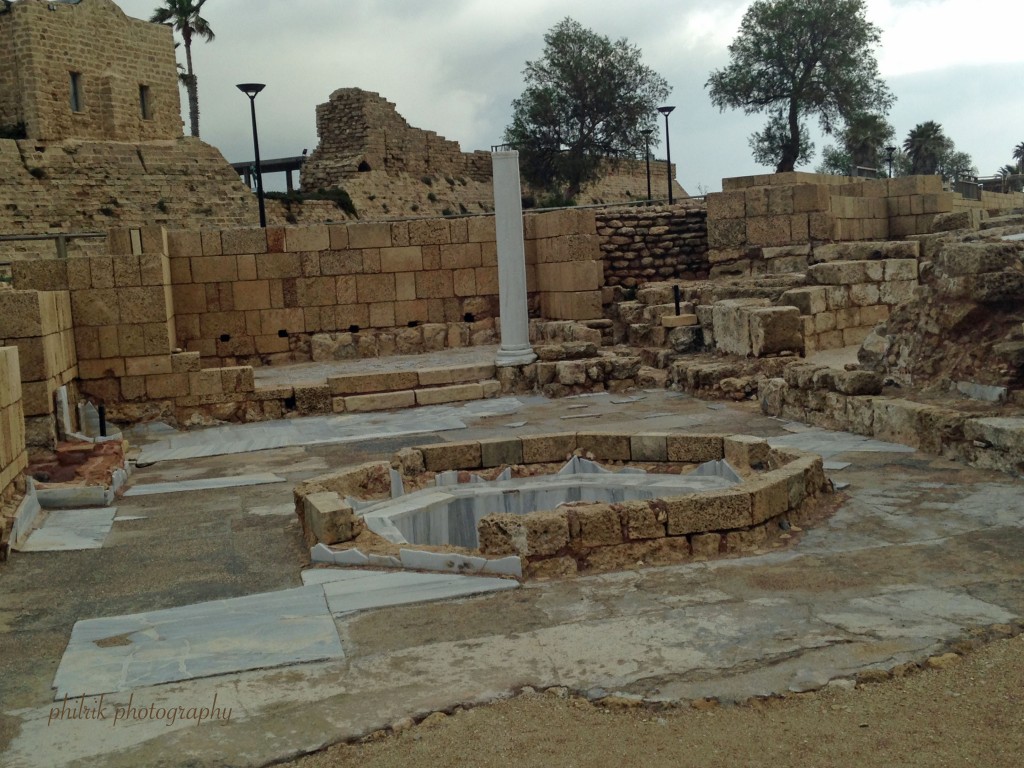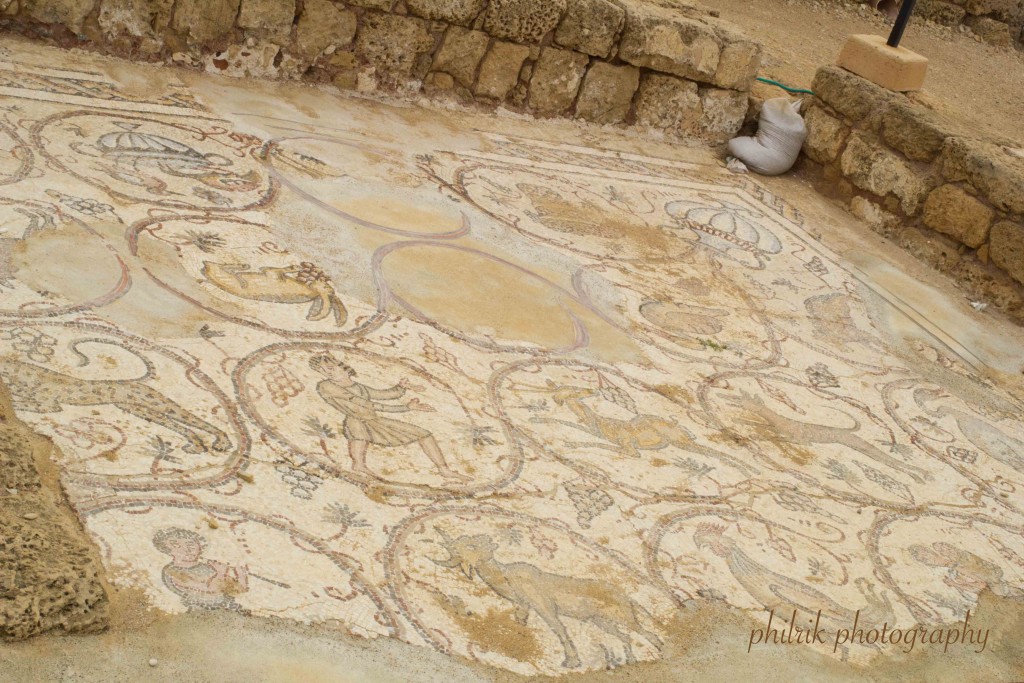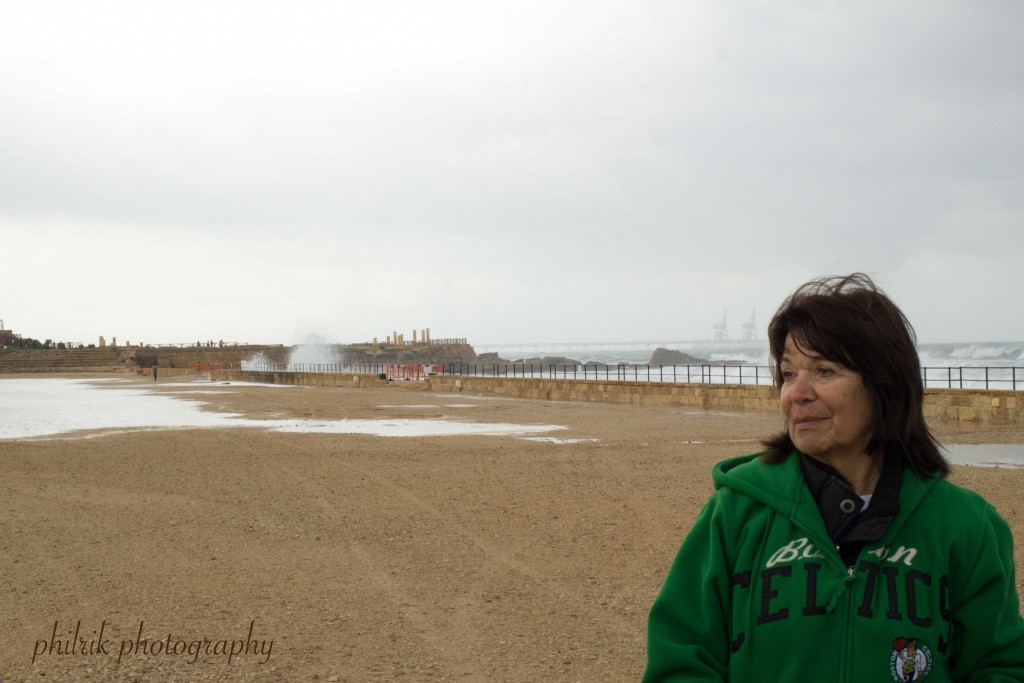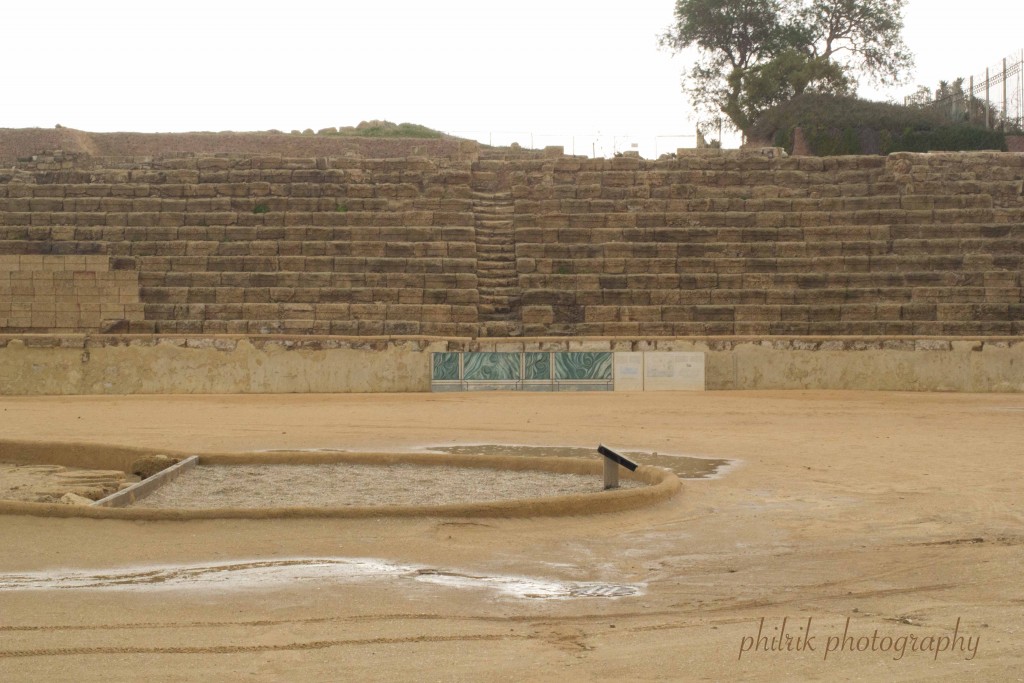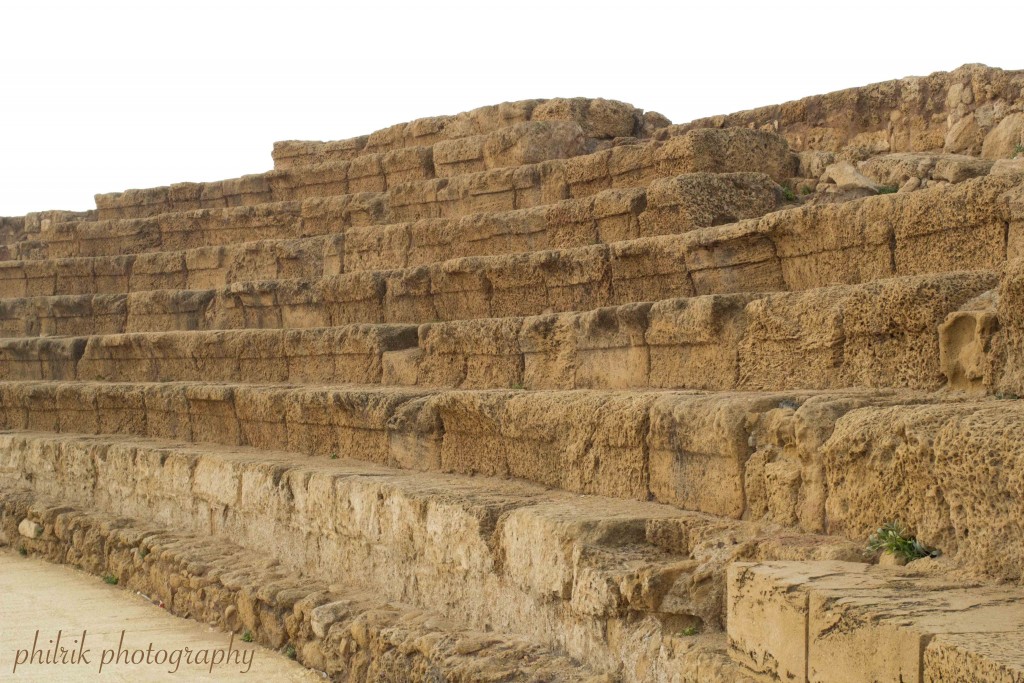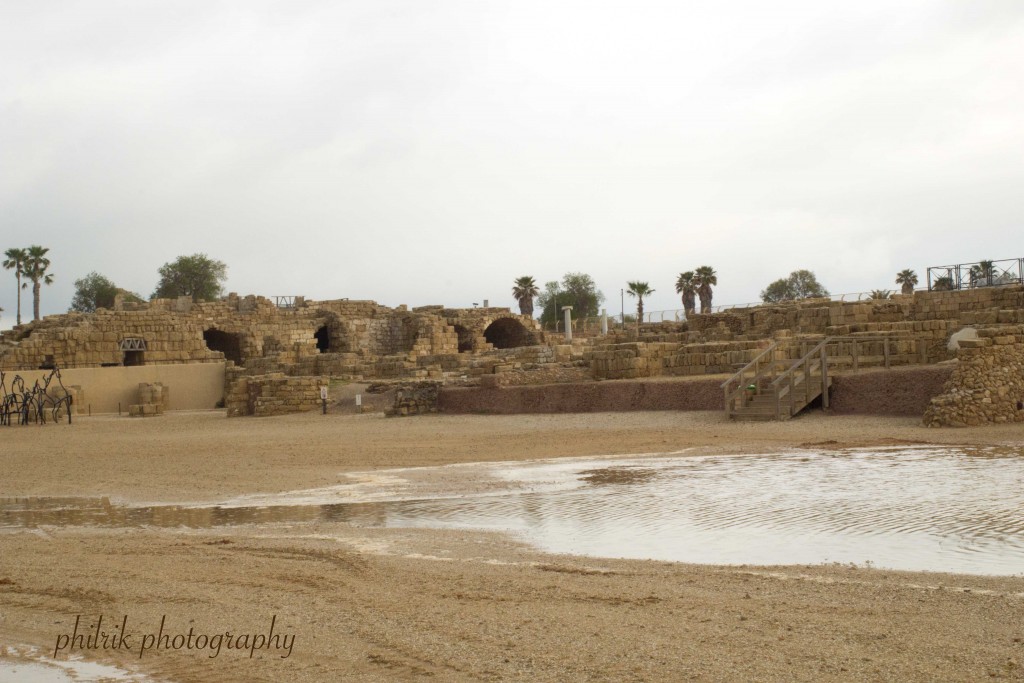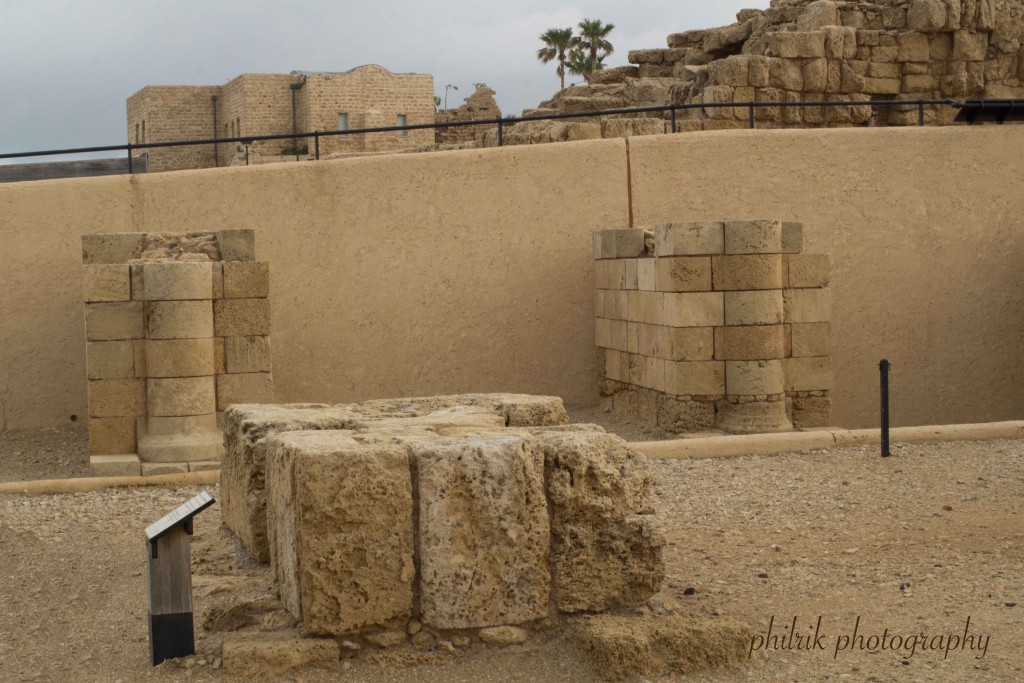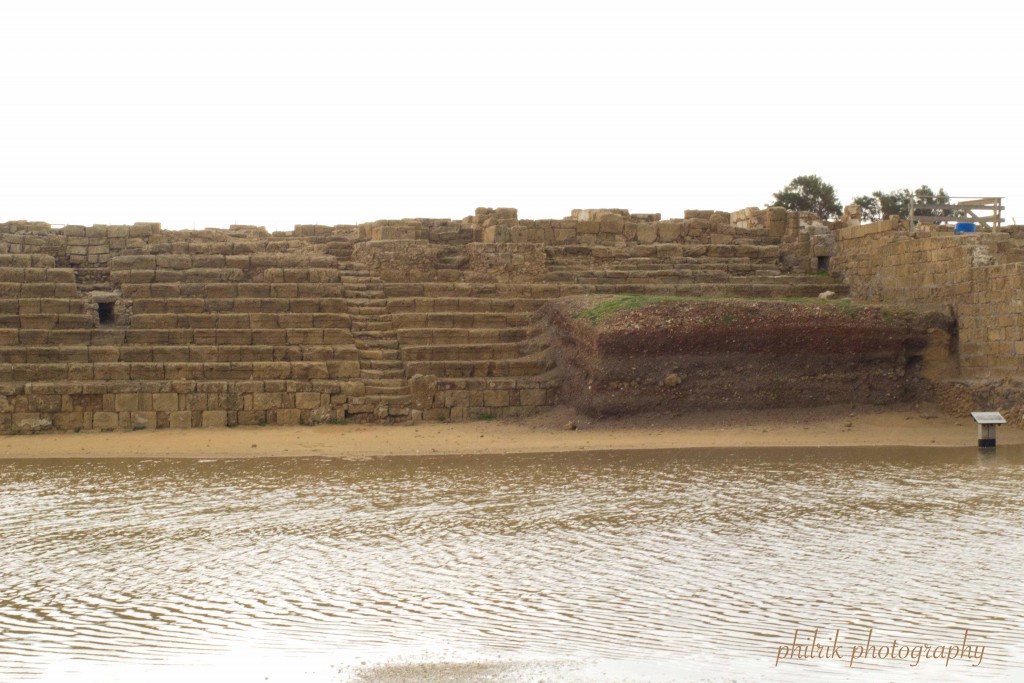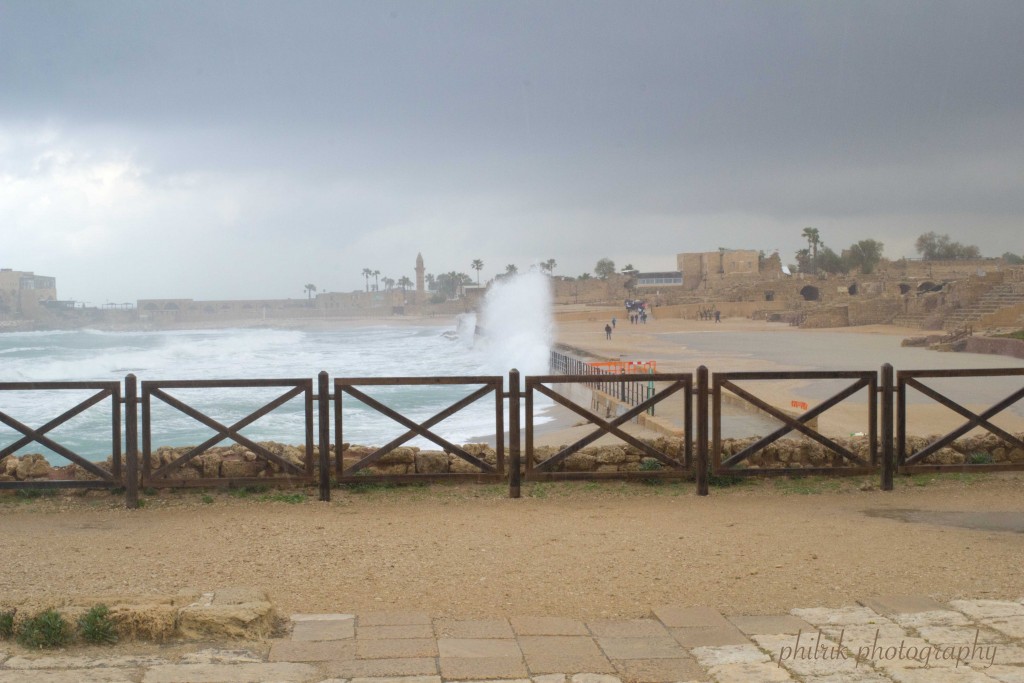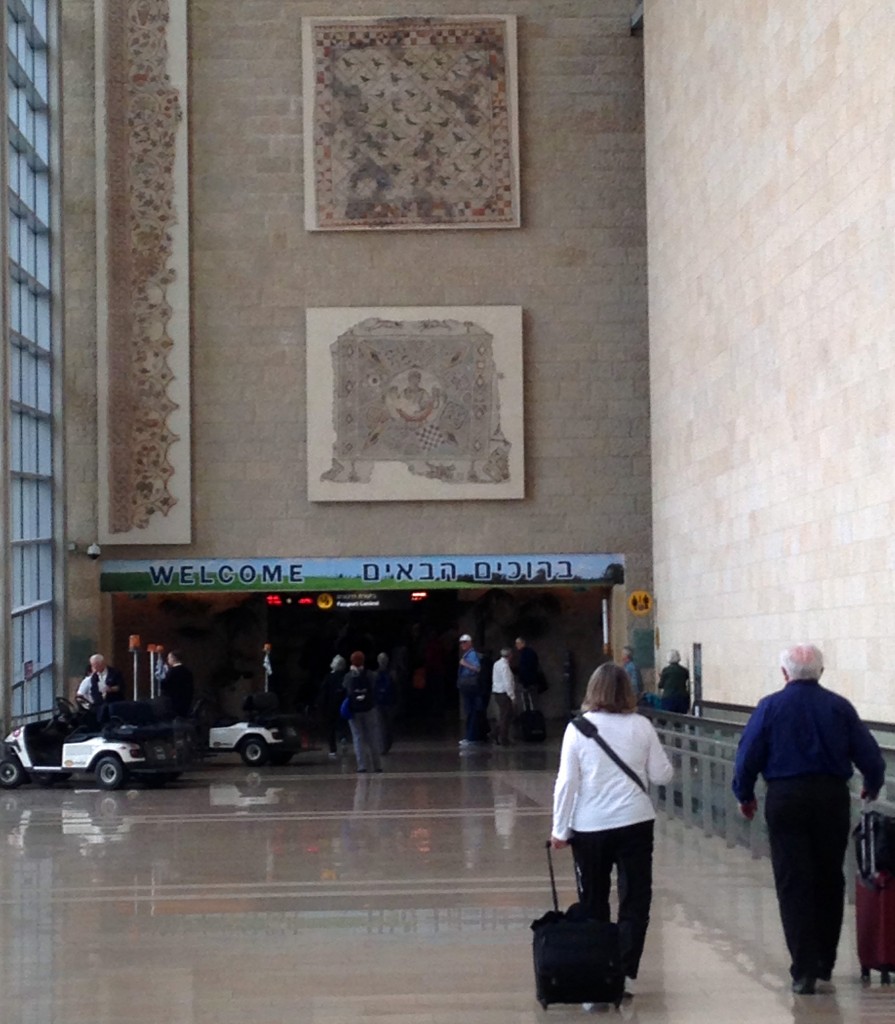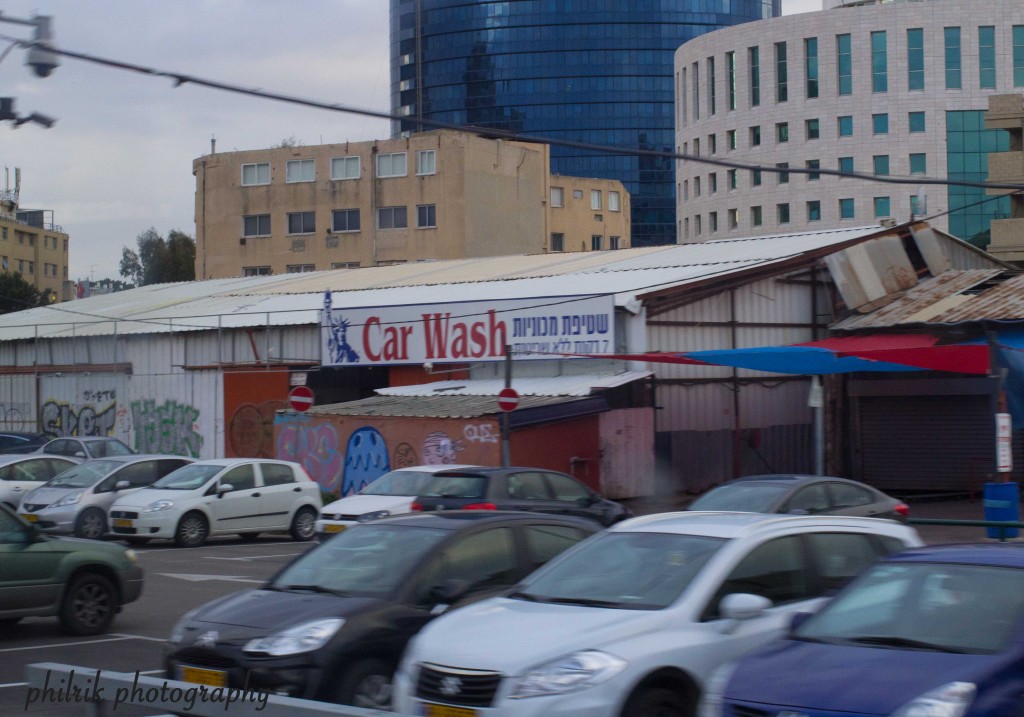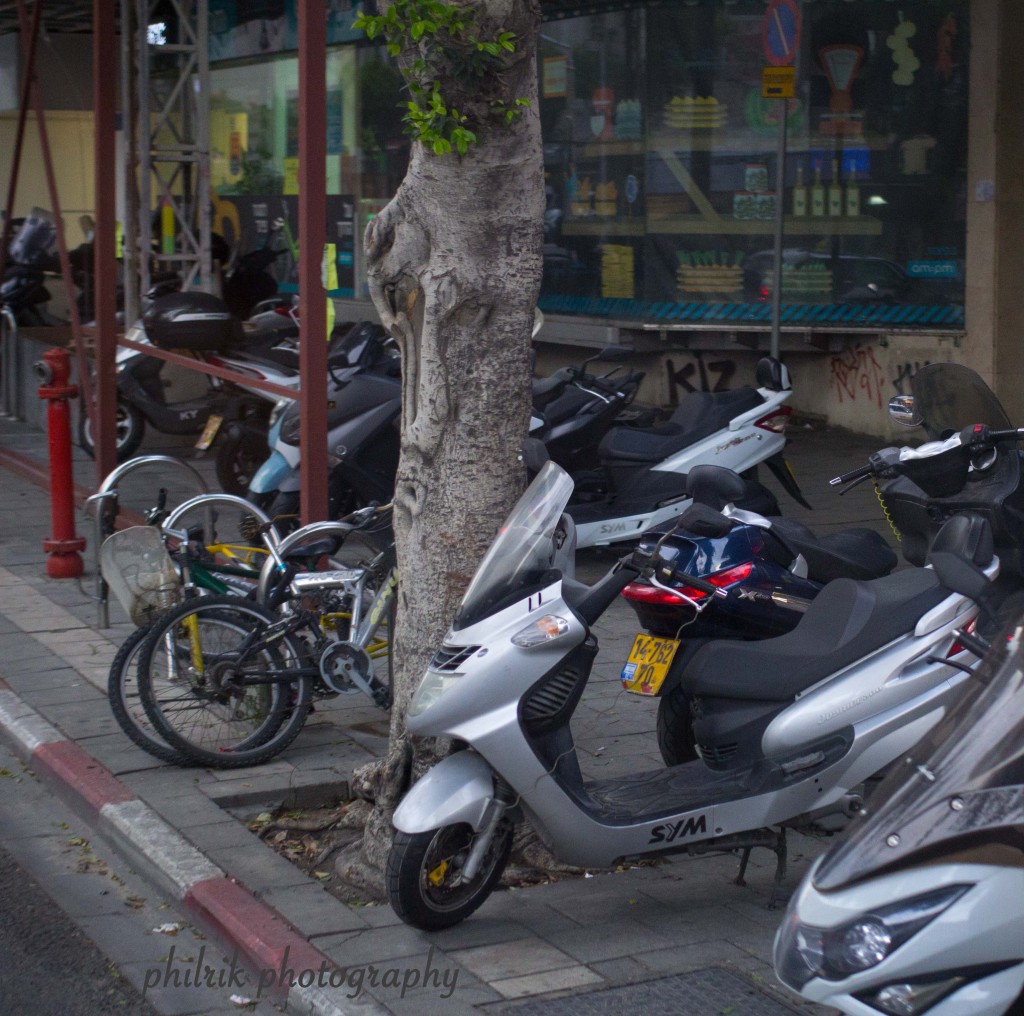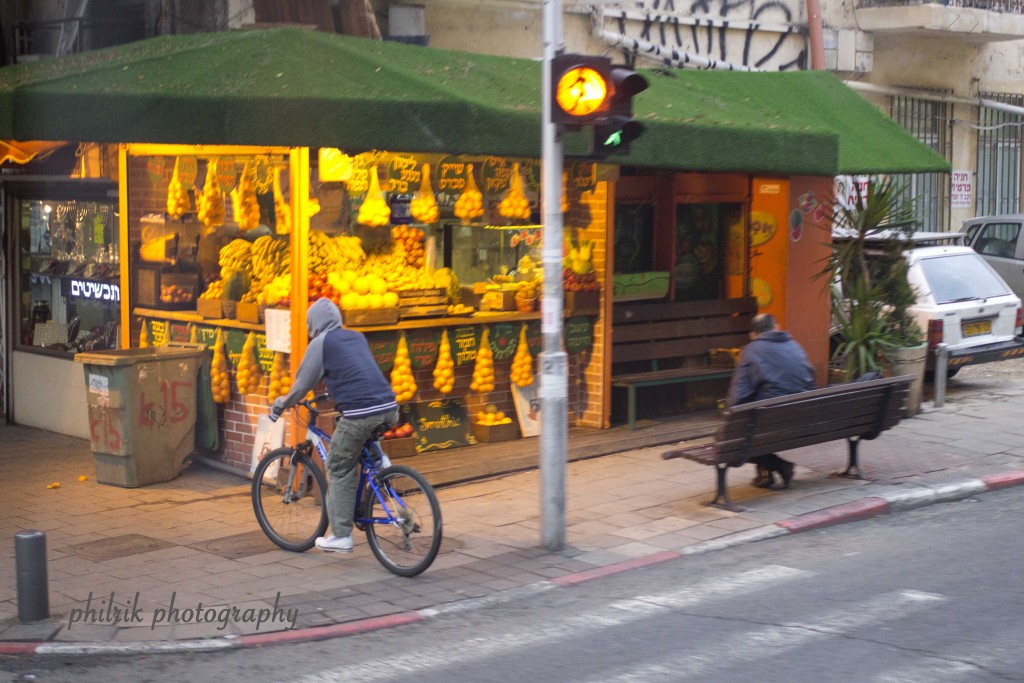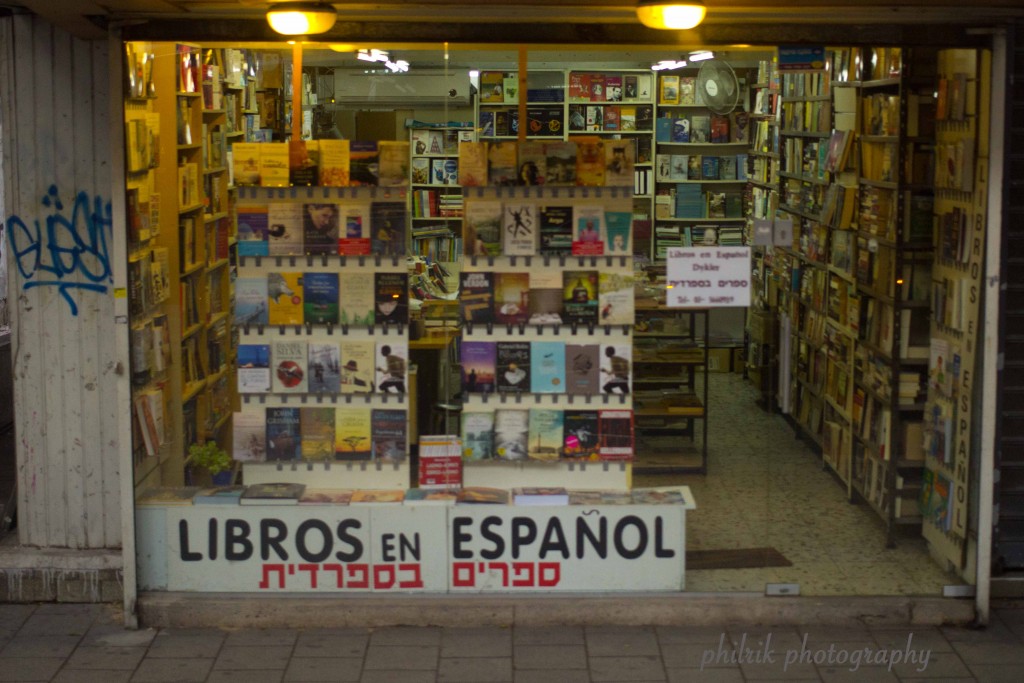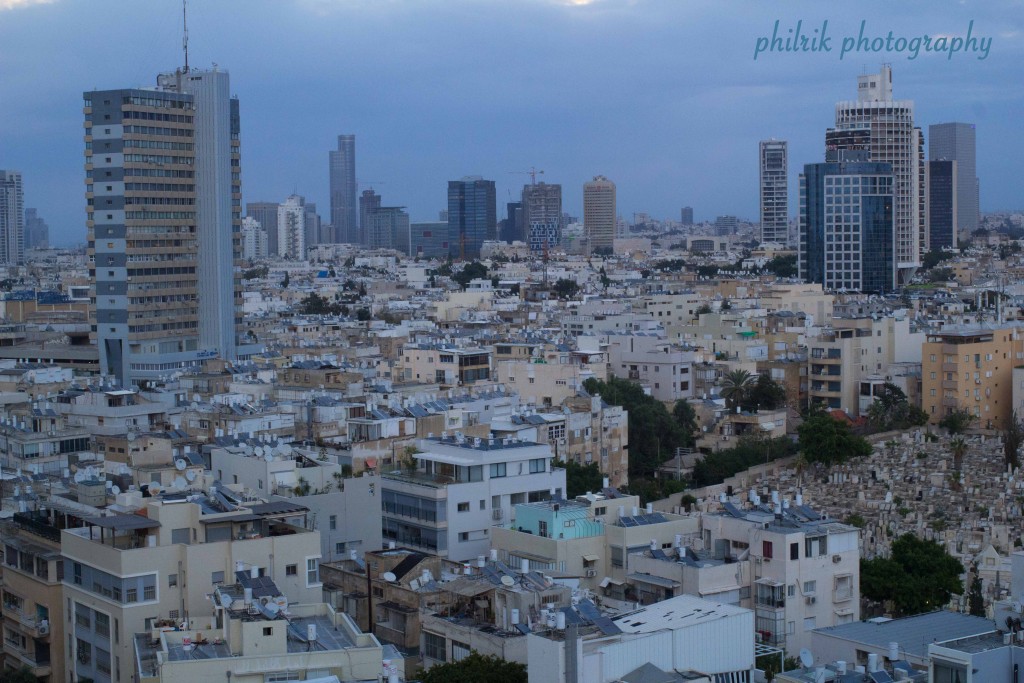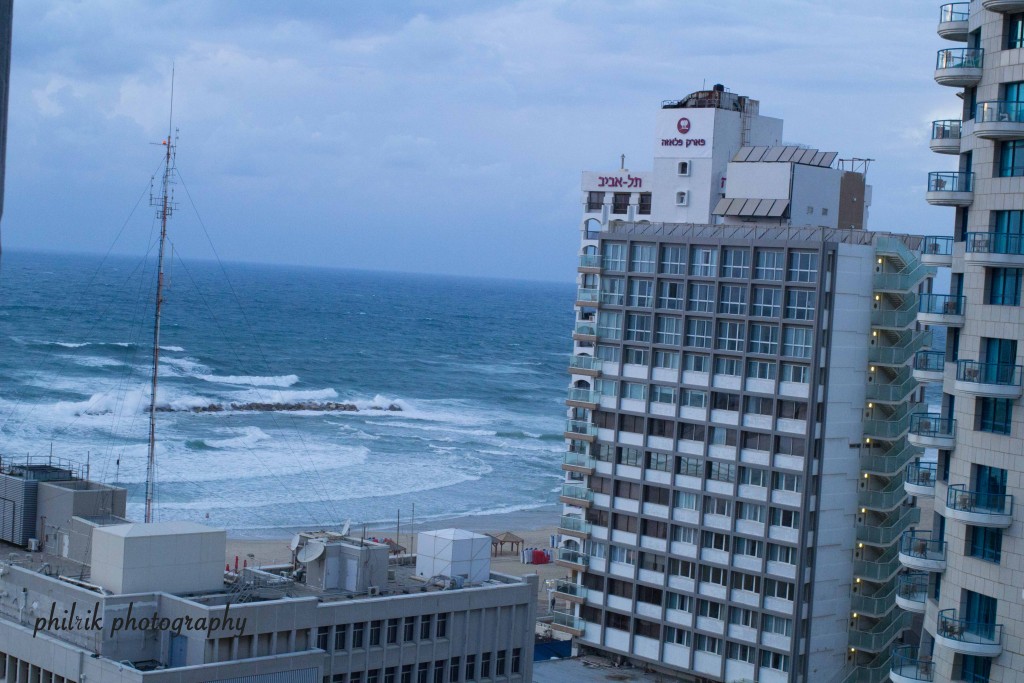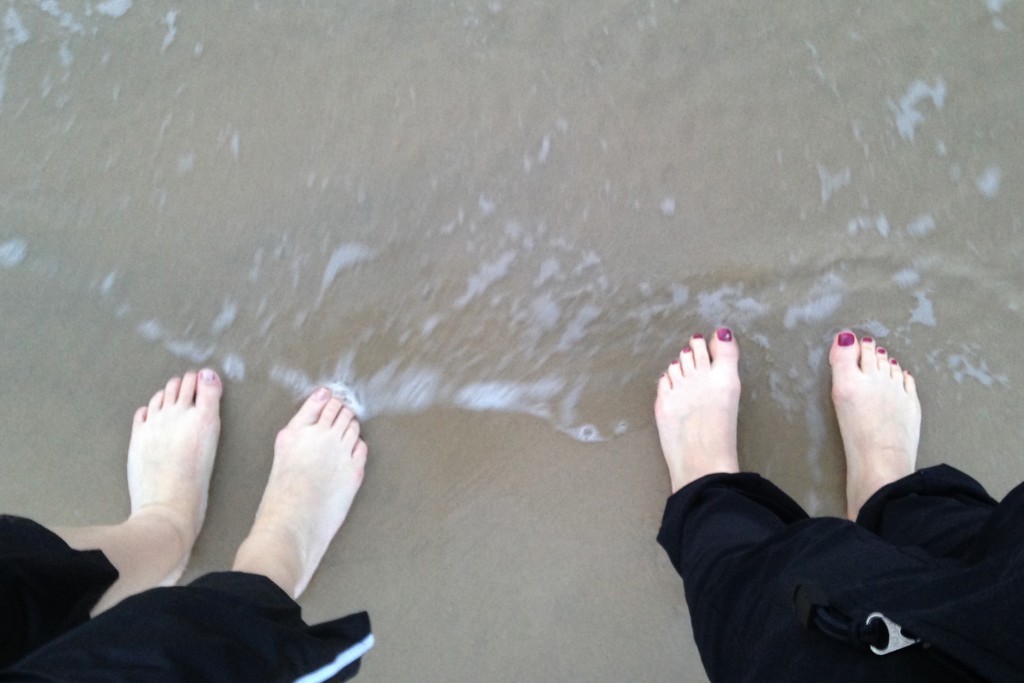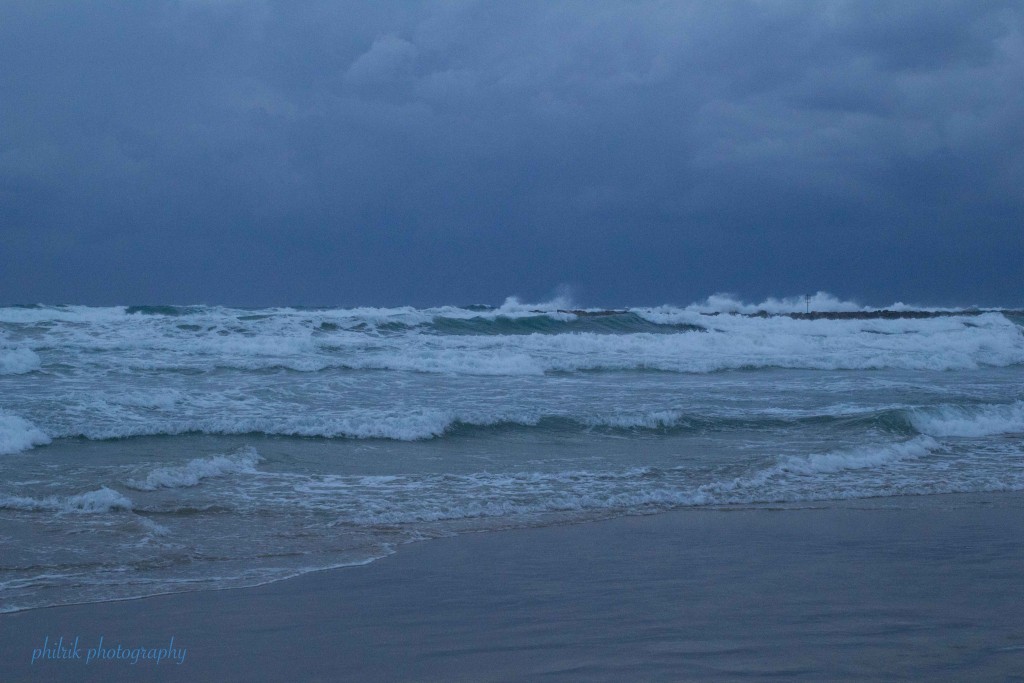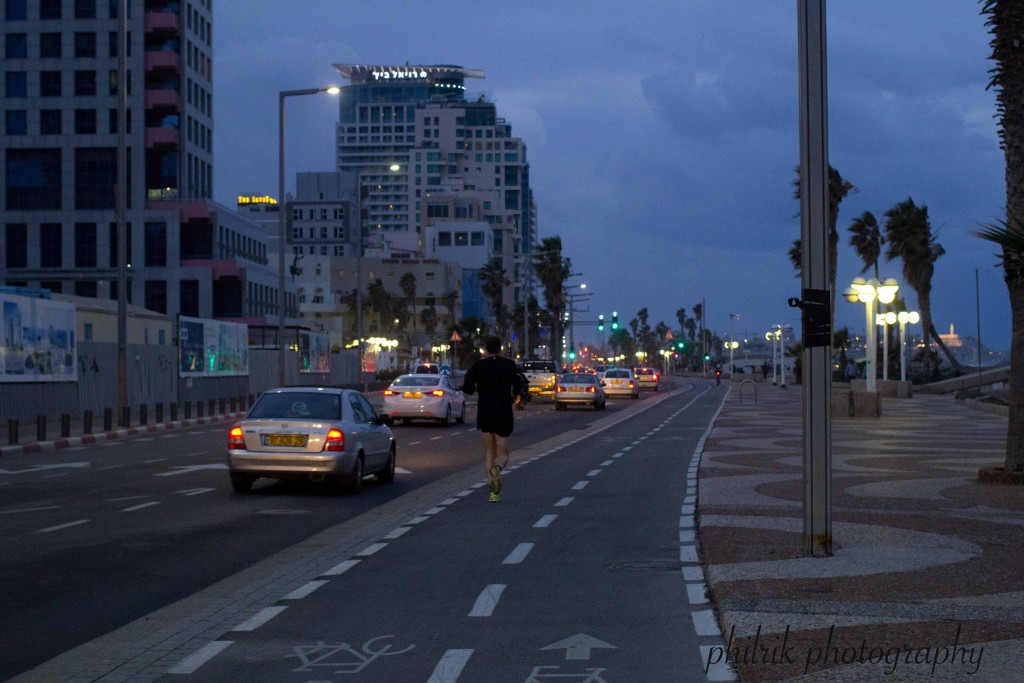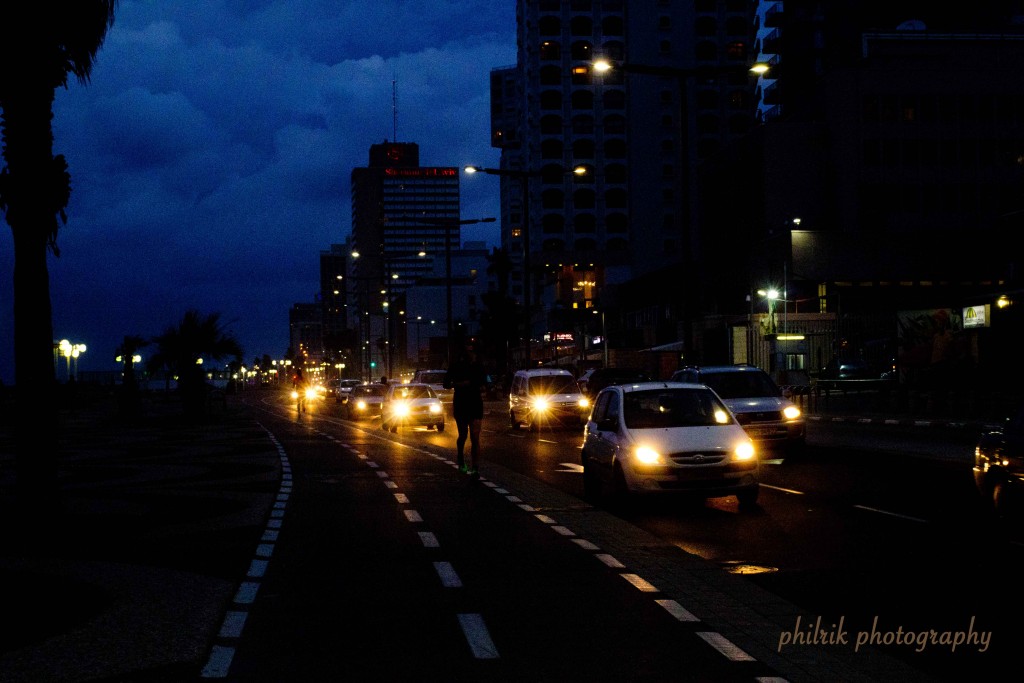I’ve had a few questions loitering in my mind this Christmas week. How do you say “Merry Christmas!” when your friend lies suffering, her body destroyed by cancer? How do you say, “Merry Christmas!” when a child loses her mother or a mother her child just as they should be unwrapping presents together? How do you say, “Merry Christmas!” to the married couple who is barely civil to each other these days or the one who spends their first Christmas alone? The pain cuts deep and there is little merry about any of it. Really, each is the same question asked a different way–how do we say “Merry Christmas!” in the midst of misery? It seems so flippant and insufficient.
The answer is found when I open my Bible. But first, there are more questions. Why did Mary’s spirit rejoice in God her Savior at the angel’s news that she would give birth to the Son of the Most High (Luke 1:32, 47)? When the angels came to the shepherds and proclaimed the Messiah’s birth, why did the shepherds proceed with such haste to see him and leave glorifying God (Luke 2:8-20)? Why did the wise men travel so far seeking the king whose star they had seen (Matthew 2:1-2)? Why did Simeon, righteous and devout, wait so expectantly to see the Lord’s Christ (Luke 2:26)?
The indication is that they all knew what God had said about his salvation. The prophets had foretold of a king who would come humbly, setting free the prisoners of hope, reigning from sea to sea, and speaking peace to the nations (Zech. 9:9-12, Micah 5:2-5). The condition of people and their world was just like it is today. They longed for freedom from bondage, relief from heavy labor, healing from sickness, the end of war, and gladness instead of mourning.
There is no faithfulness or steadfast love,
and no knowledge of God in the land;
there is swearing, lying, murder, stealing, and committing adultery;
they break all bounds, and bloodshed follows bloodshed.
Therefore the land mourns,
and all who dwell in it languish, (Hosea 4:1b-3a).
They had spent their lives hearing of and waiting in eager anticipation for One who would come and bring them salvation. They had heard the words of Isaiah promising the birth of a child who would end oppression and injustice.
“The people who walked in darkness
have seen a great light; […]
they rejoice before you
as with joy at the harvest,
as they are glad when they divide the spoil.
For the yoke of his burden,
and the staff for his shoulder,
the rod of his oppressor,
you have broken […]
For to us a child is born,
to us a son is given; […]
and his name shall be called
Wonderful Counselor, Mighty God,
Everlasting Father, Prince of Peace.
Of the increase of his government and of peace
there will be no end,
on the throne of David and over his kingdom,
to establish it and to uphold it
with justice and with righteousness
from this time forth and forevermore.” Isaiah 9:2-7
And then the sky lit up, the angels sang, the baby had been born, the promised One had come! How could they help but rejoice? No longer would they languish, but their eyes would see salvation! The birth of this baby, called Jesus (Yahweh is salvation) and Immanuel (God with us), brought new hope, restoration, peace and reconciliation with God. It was the fulfillment of God’s promise going all the way back to sin’s entry on the scene. When Adam and Eve chose to ignore God, wanting instead to BE God, they brought the curse of death upon all mankind. But even then, God promised to send from a woman one who would bruise Satan’s head (Gen. 3:15). And now God’s salvation had arrived!
Isaiah had prophesied God’s hope to the people. A hope that kept their weary eyes lifted and looking for its fulfillment. They were ready to see and believe God’s salvation. They went with haste, they kneeled before him, they sang songs of worship, and glorified God, testifying that God was with them. Immanuel, God with us.
The Spirit of the Lord God is upon me,
because the Lord has anointed me
to bring good news to the poor;
he has sent me to bind up the brokenhearted,
to proclaim liberty to the captives,
and the opening of the prison to those who are bound;
to proclaim the year of the Lord’s favor,
and the day of vengeance of our God;
to comfort all who mourn;
to grant to those who mourn in Zion—
to give them a beautiful headdress instead of ashes,
the oil of gladness instead of mourning,
the garment of praise instead of a faint spirit;
that they may be called oaks of righteousness,
the planting of the Lord, that he may be glorified. Isaiah 61:1-3
And Jesus said, “Today this Scripture has been fulfilled in your hearing.” (Luke 4:21) He is the one proclaiming good news, setting captives free and opening blind eyes. There will be an end to fear, tears, pain and death, wiped away forever in His presence (Rev. 21:3-5).
That’s our expectant hope, and why we say “Merry Christmas!” It’s how we can say “Merry Christmas!” when we feel like crumbling. We know that Christ has come, conquered through his death and resurrection, and will return again for a final reckoning. We know that he has already brought salvation. There’s an end to our pain and sadness! So no matter our circumstances, we REJOICE in celebration at the thought of Christmas. Jesus birth brought God to us!
Perhaps an even more meaningful exclamation would be, “Immanuel! God is with us!” (Matthew 1:23). There will never be anything flippant or insufficient about that.
Come, Lord Jesus Come, Lord Jesus, to this sadness, To our pain and to this madness. Lift our weary eyes to see You Humbly born but King of all.
Sent to reconcile us to You,
God with man on earth to dwell.
Bearing God’s full wrath in anguish,
Perfectly you took our fall.
Satan’s power has been banished,
Crushed, and conquered soon to vanish,
He no power has to shake us!
Blood-bought children You remake us.
Cause your Spirit to possess us
That we triumphantly might dwell.
Fill us with your might and power,
With hope, joy, peace our fears to quell.
Come, Lord Jesus, bring your gladness,
Ease this pain and end our sadness.
Lift our weary eyes to see You
Humbly born but King of all.
©Erika Rice

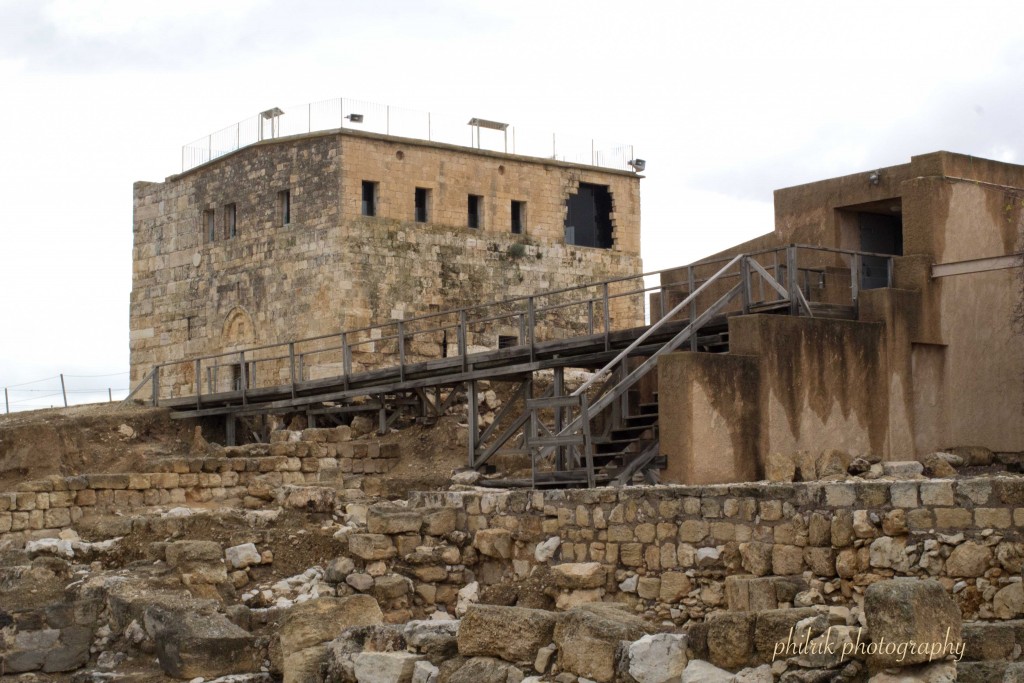
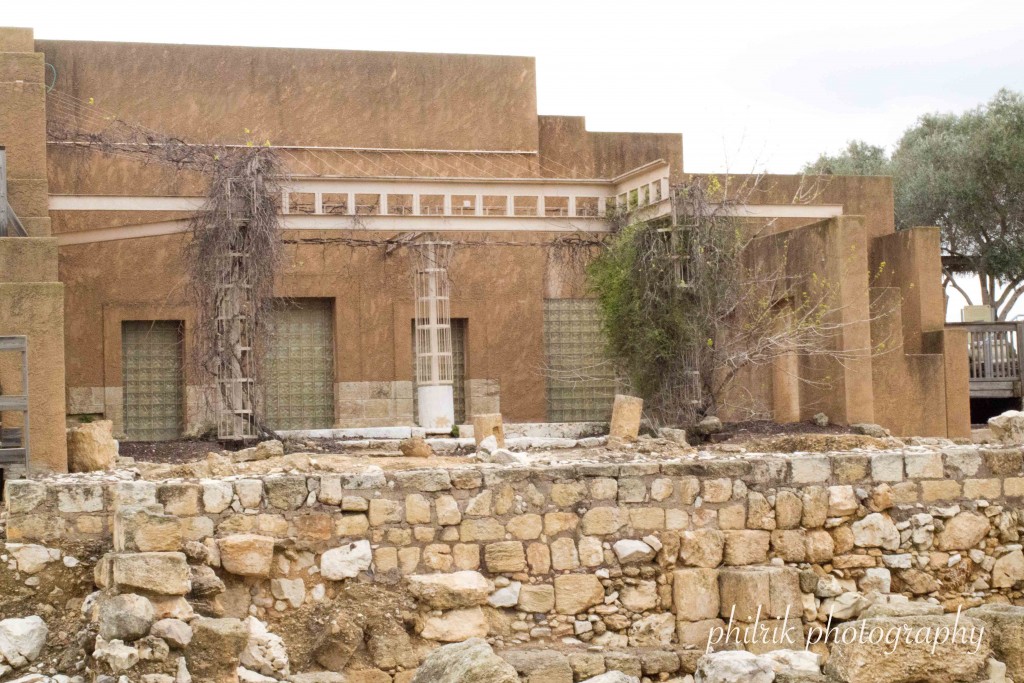
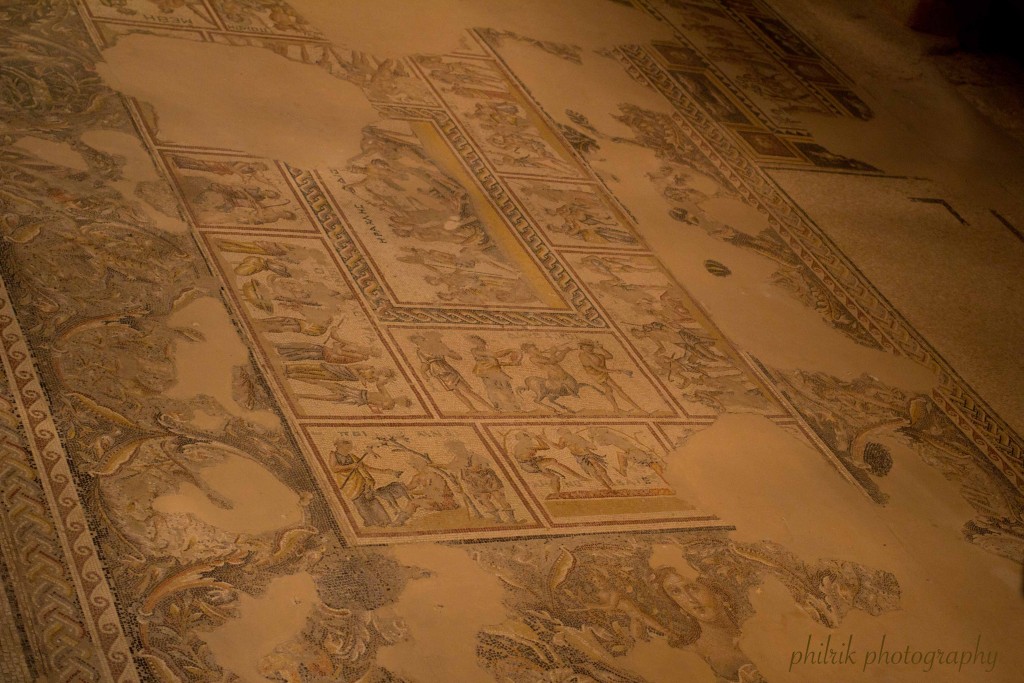
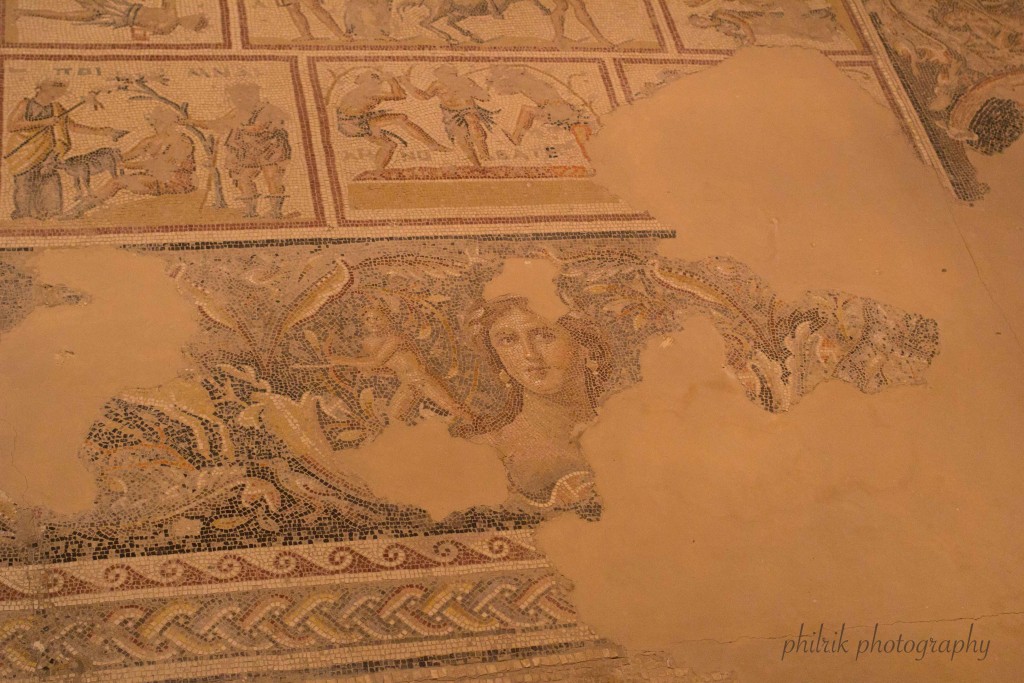
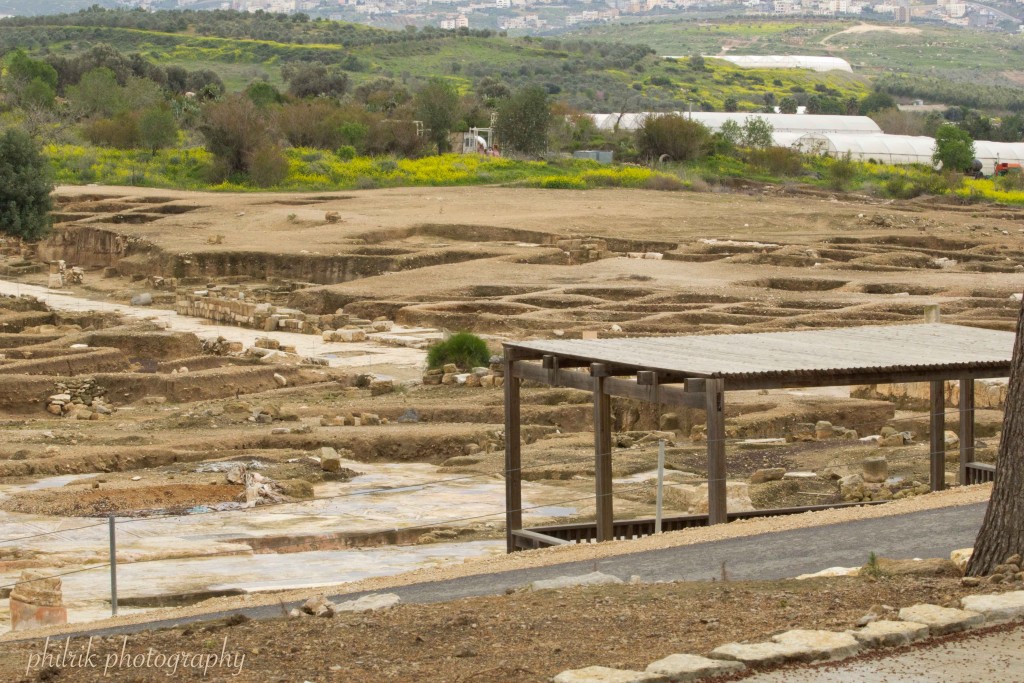
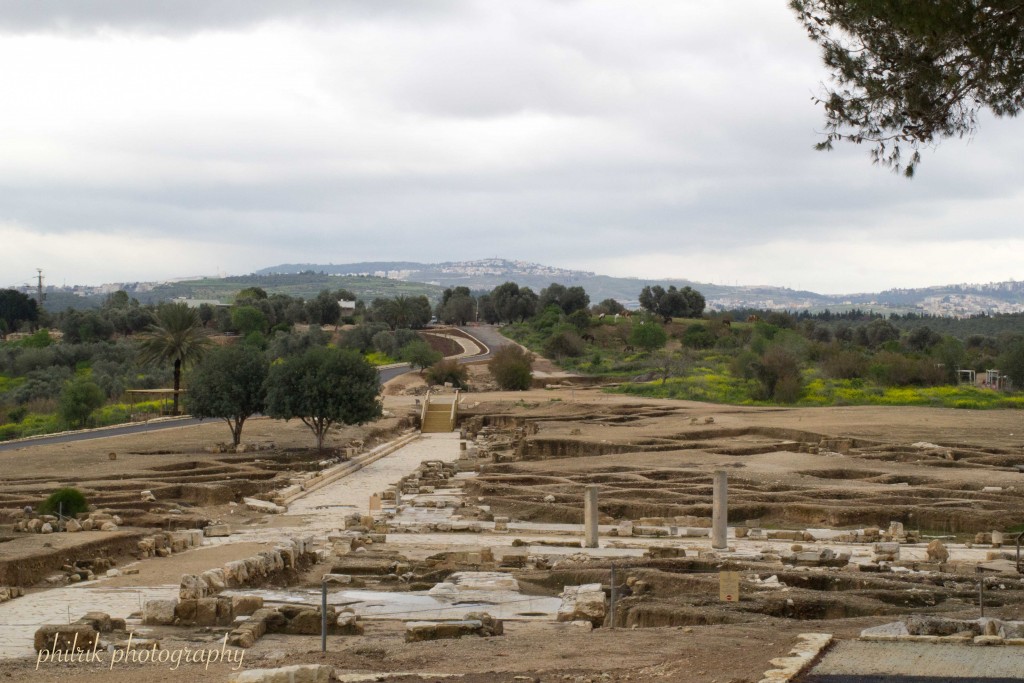
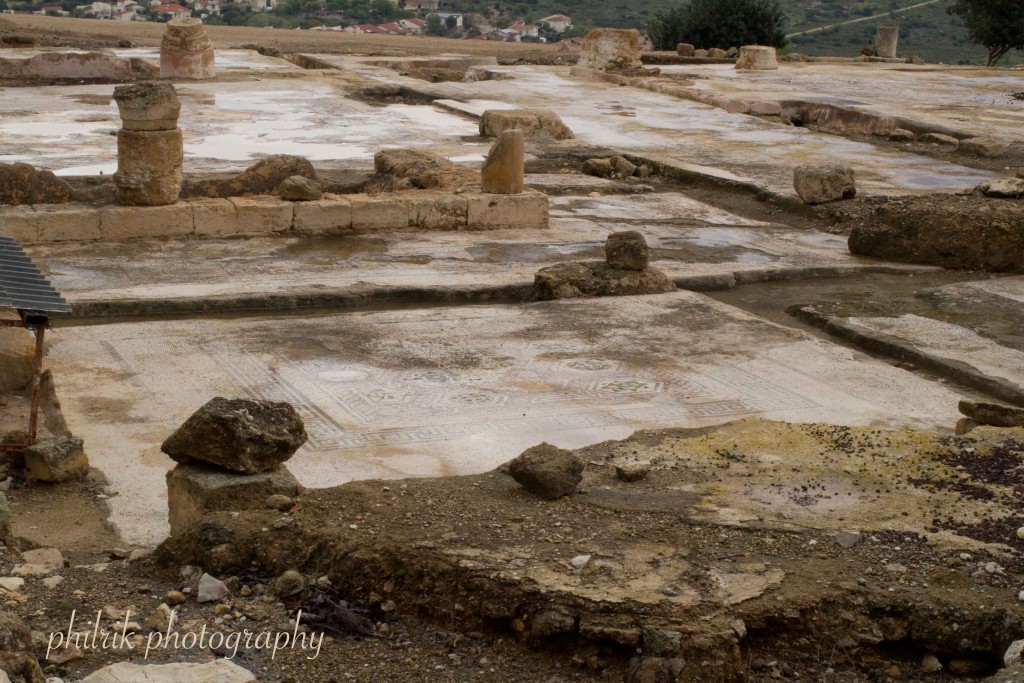
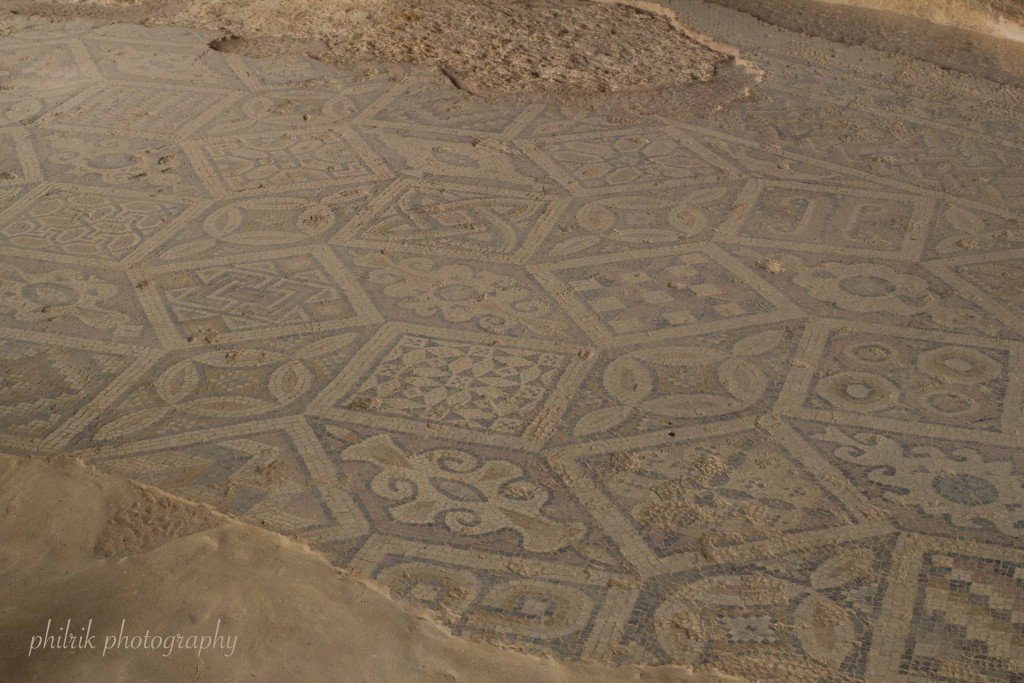
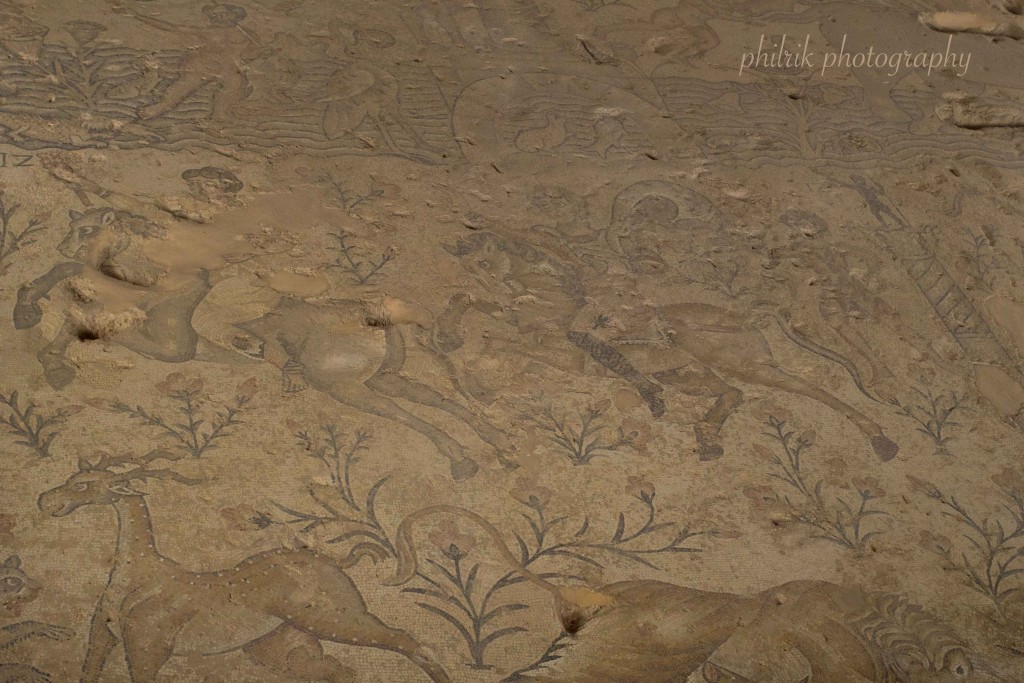
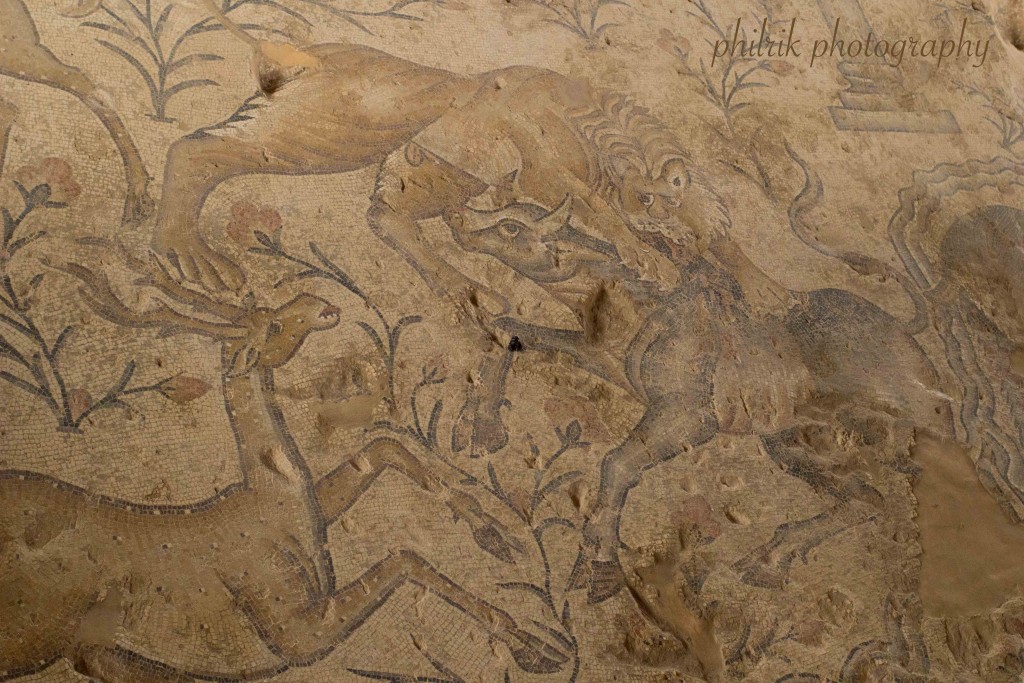
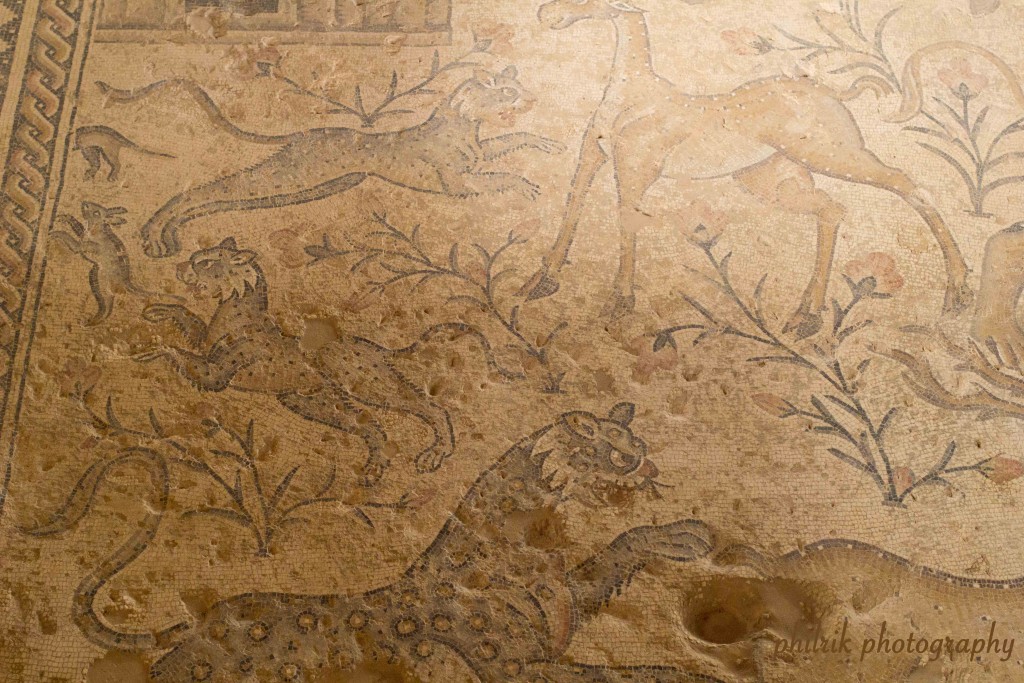
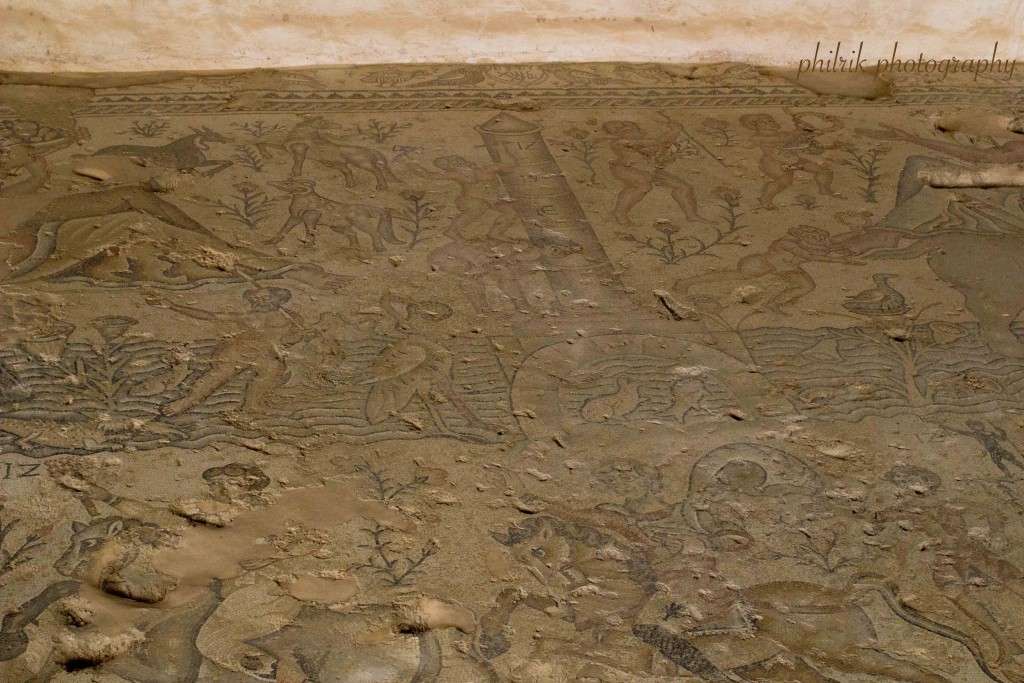
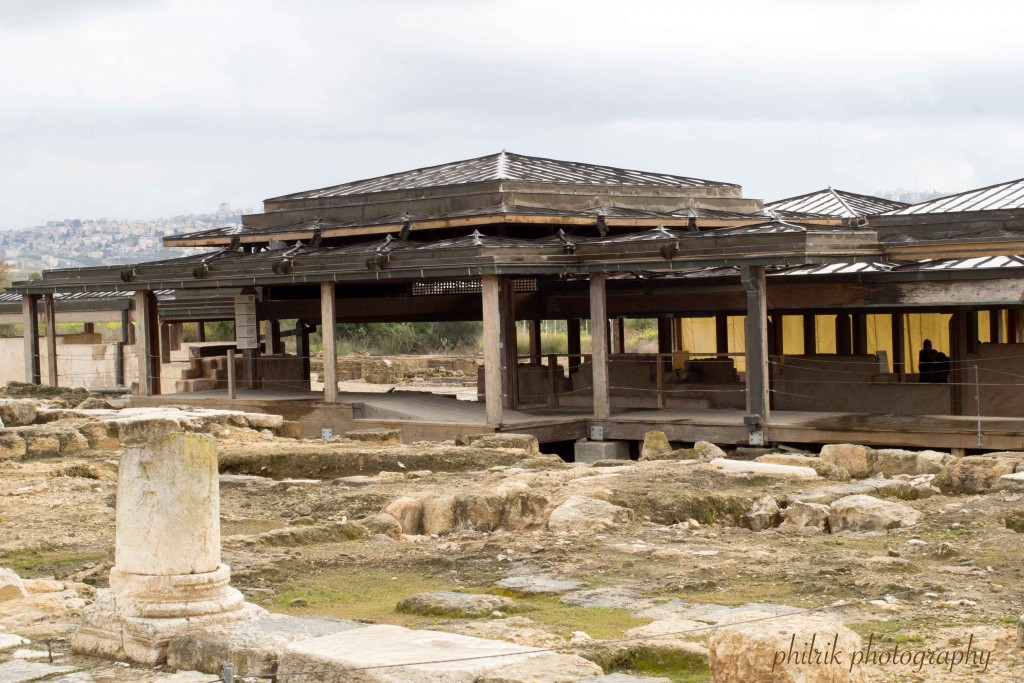
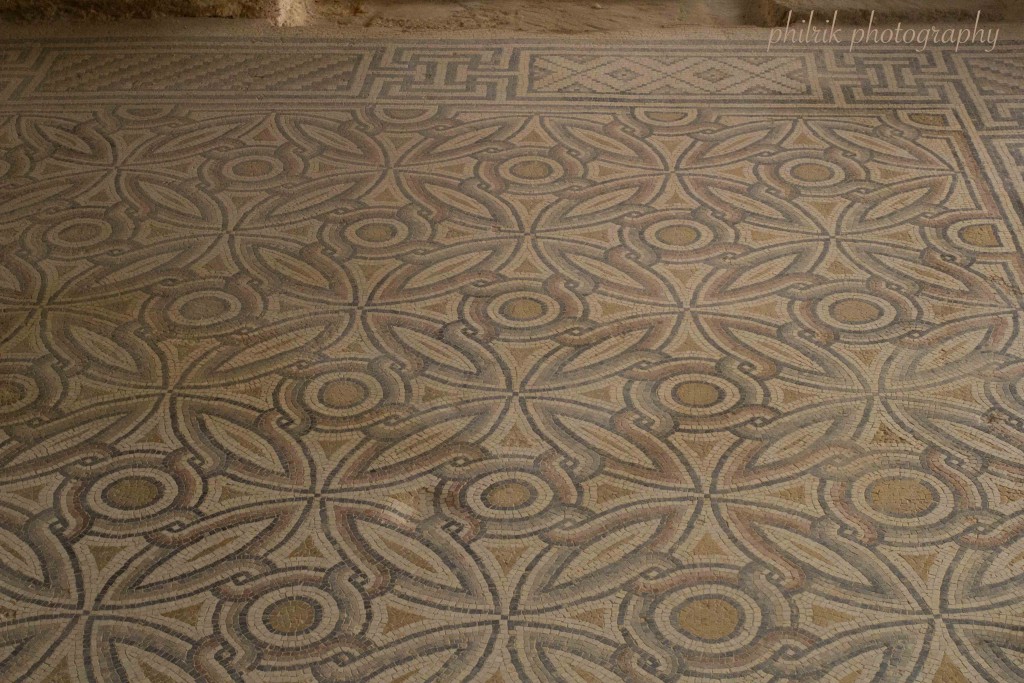
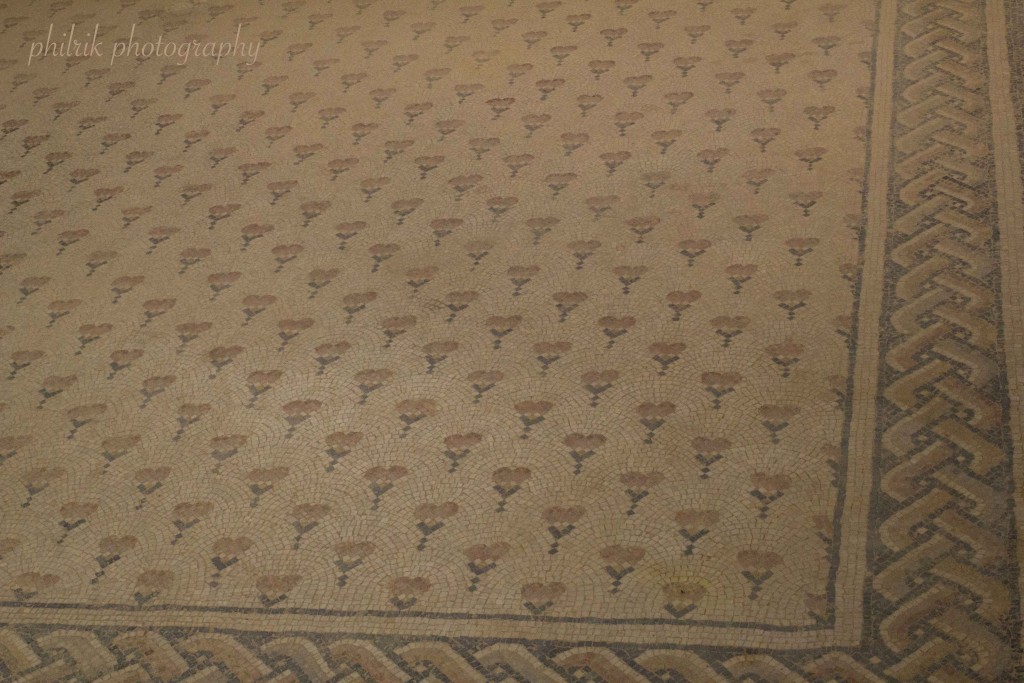
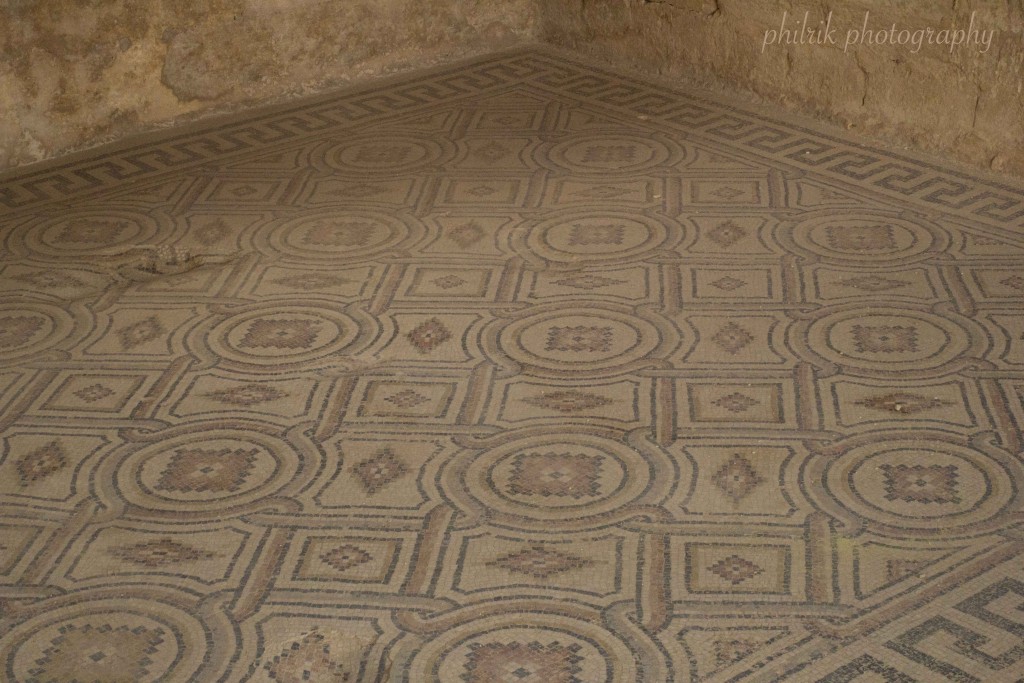
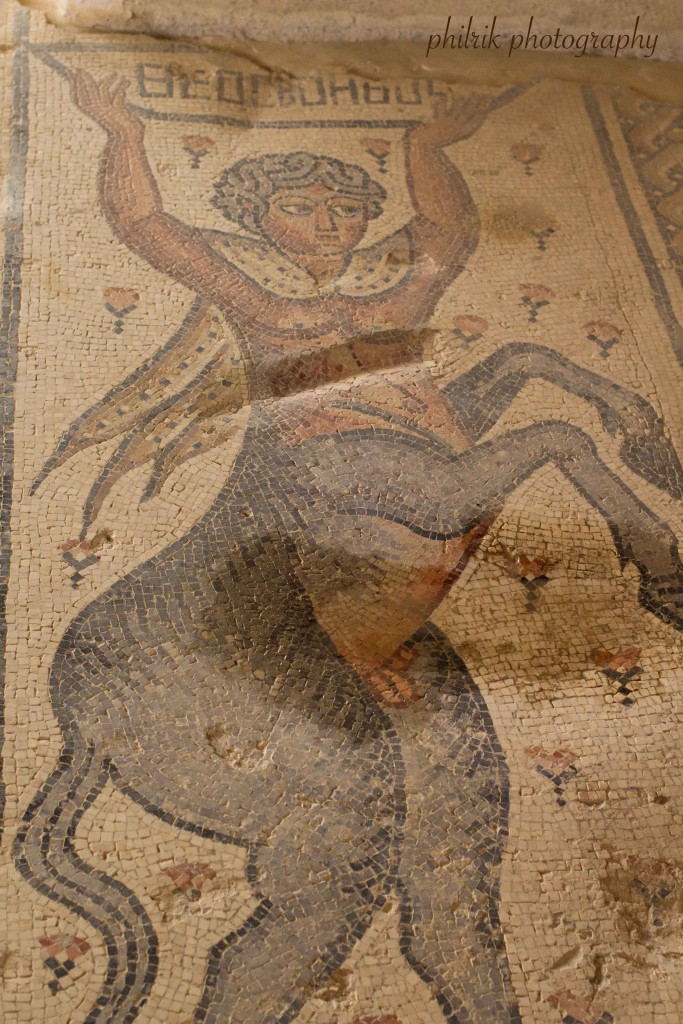
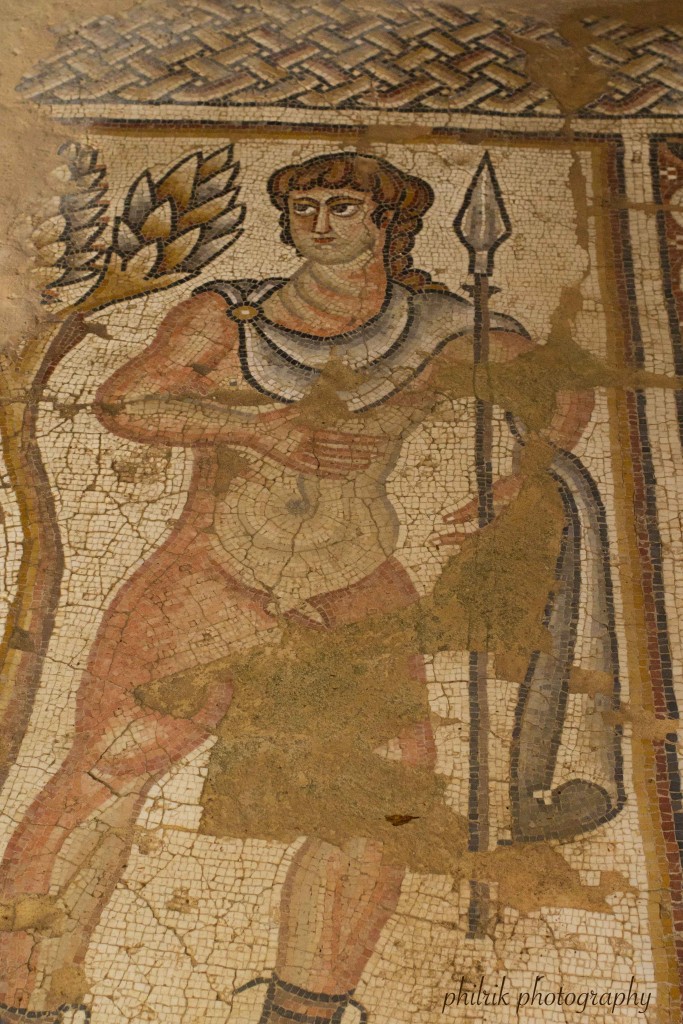
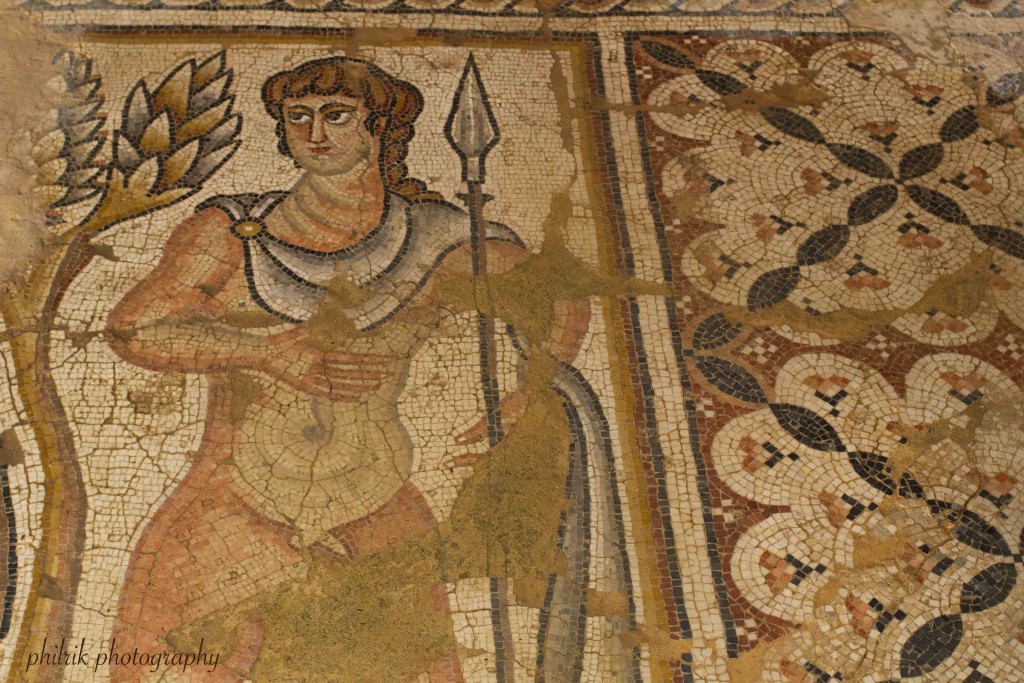
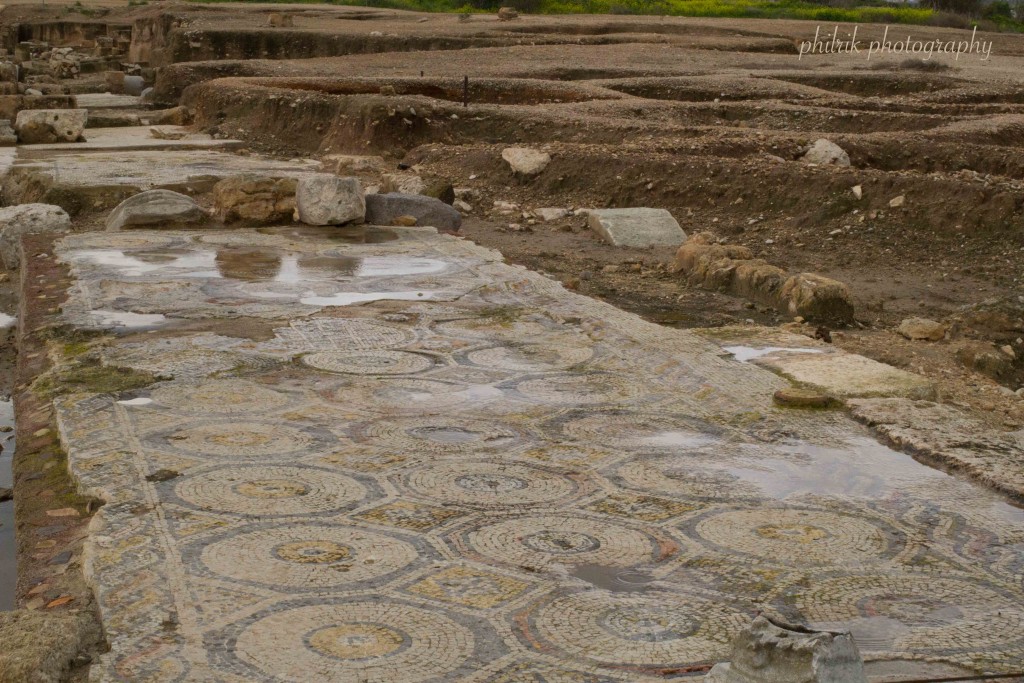
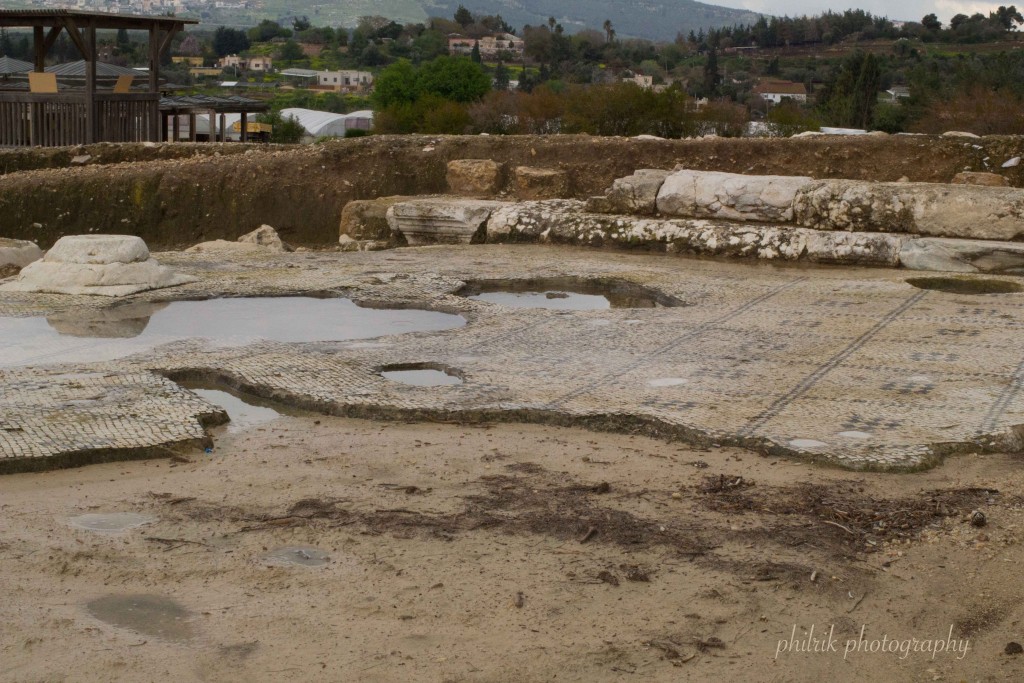
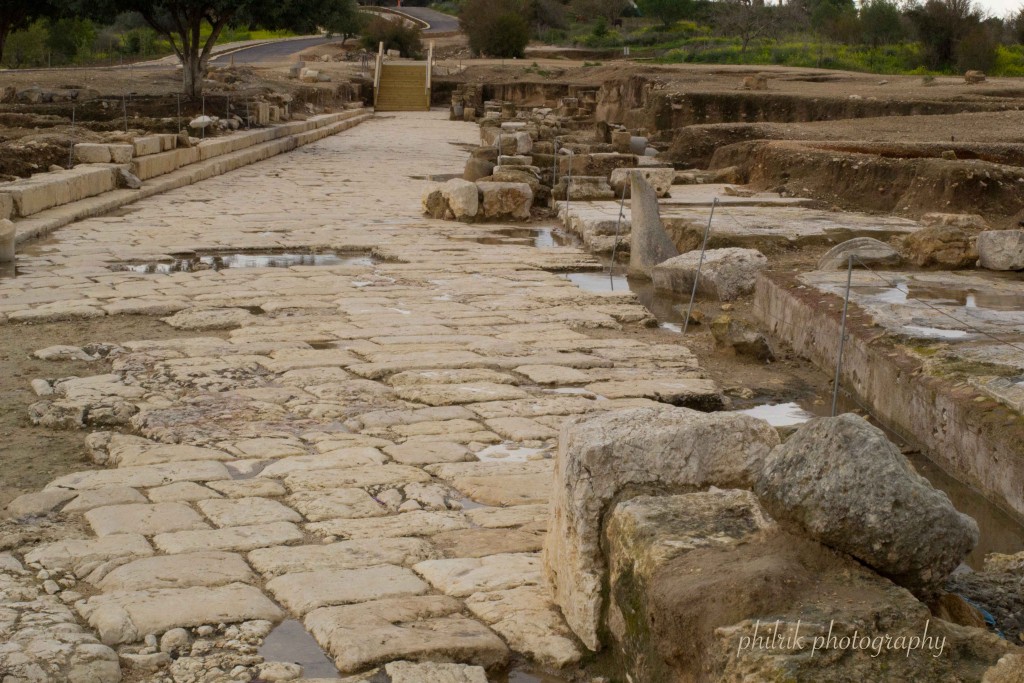
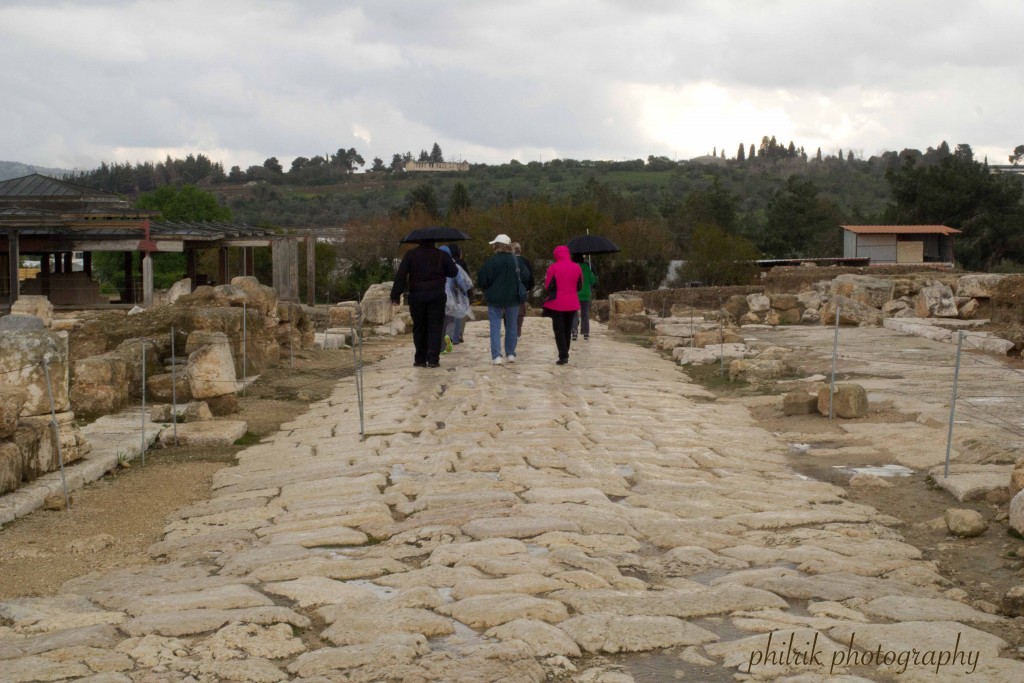
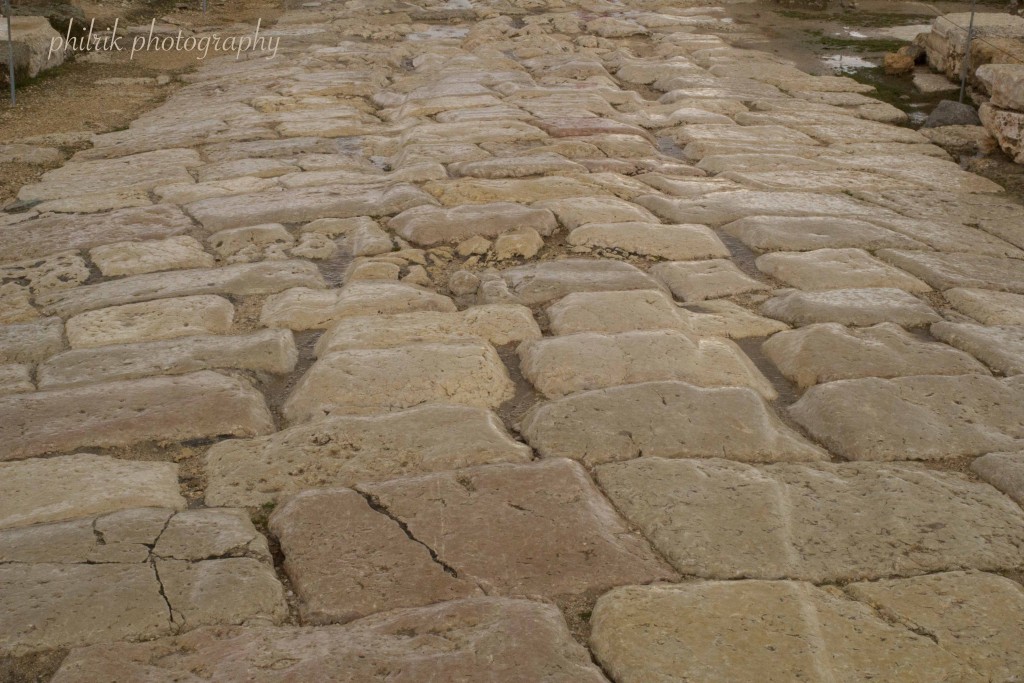
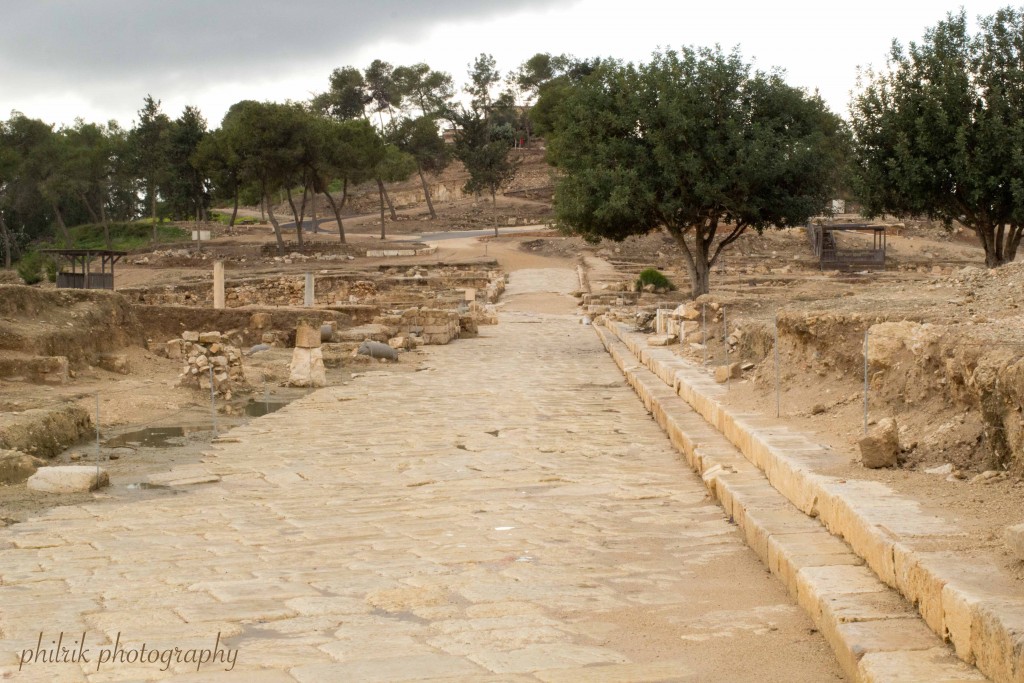
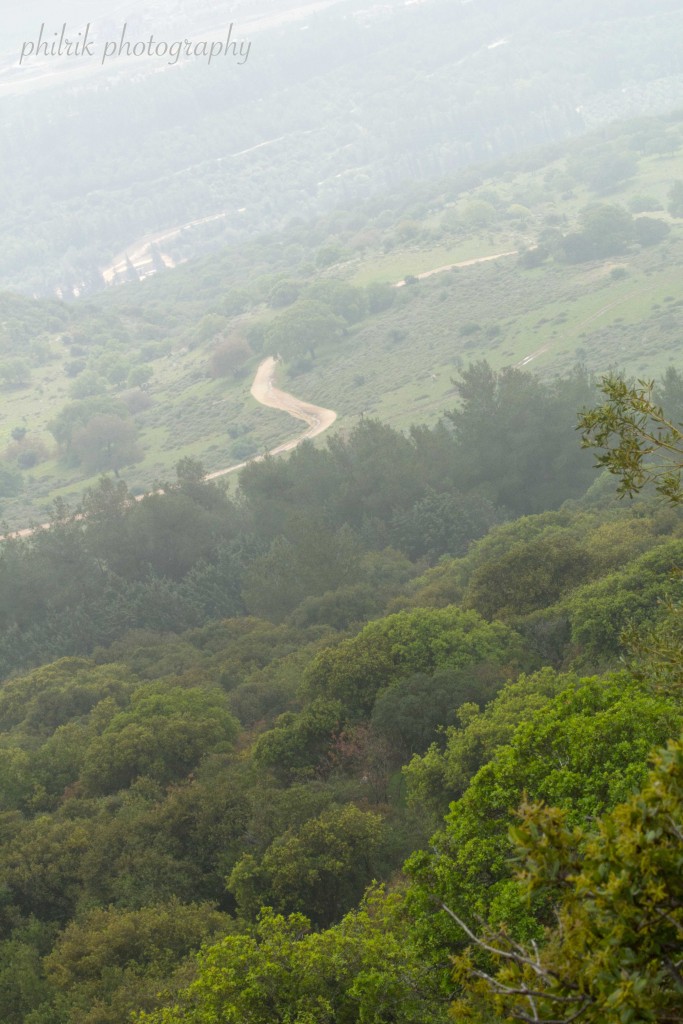
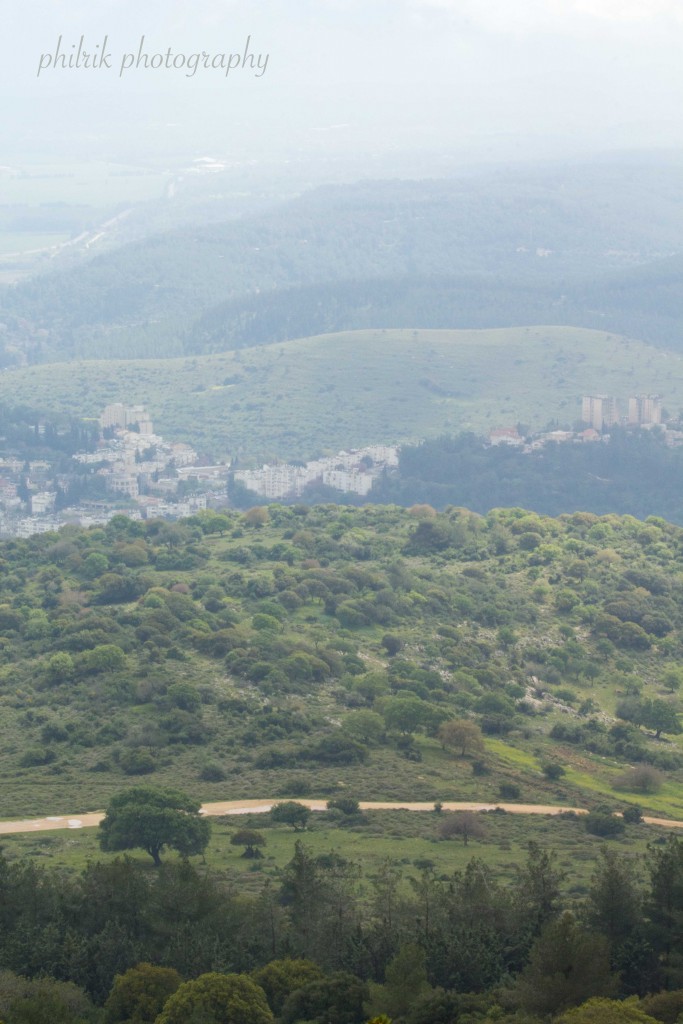
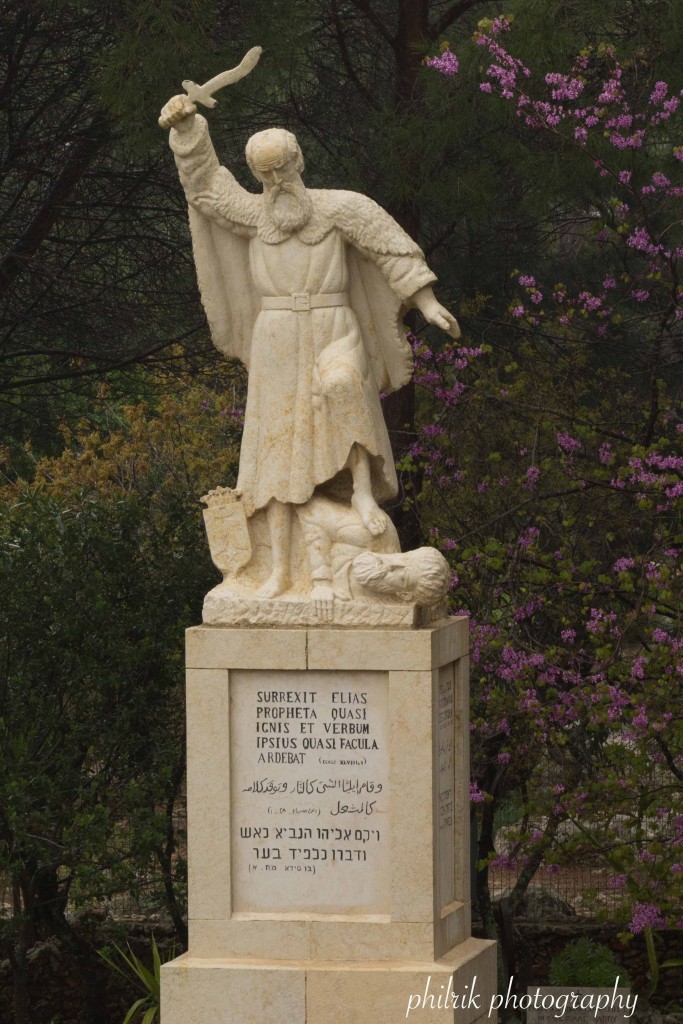
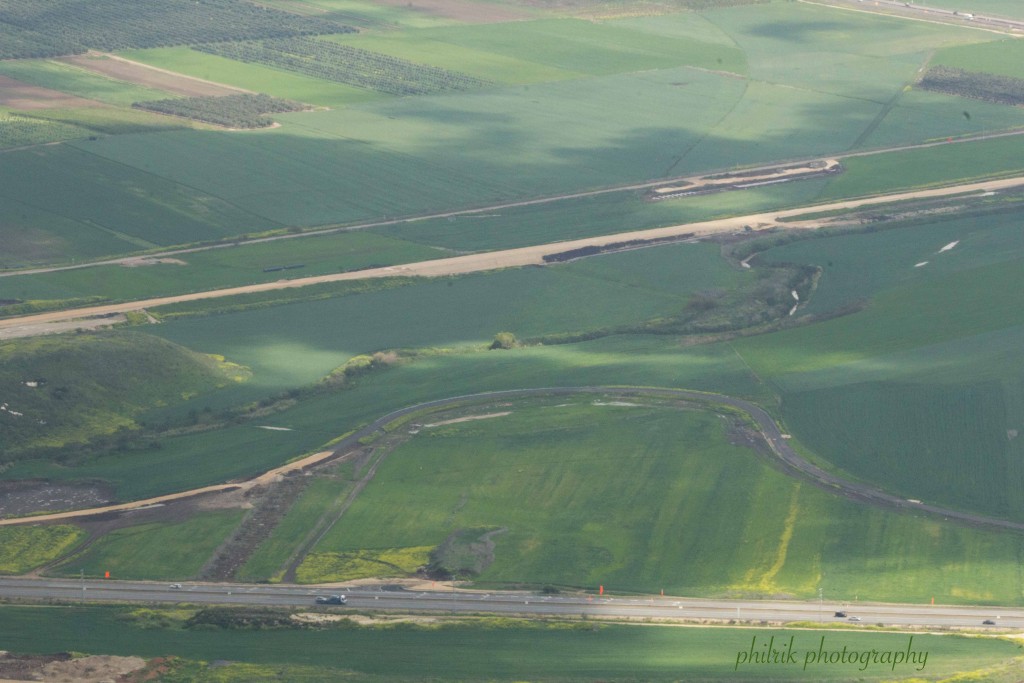
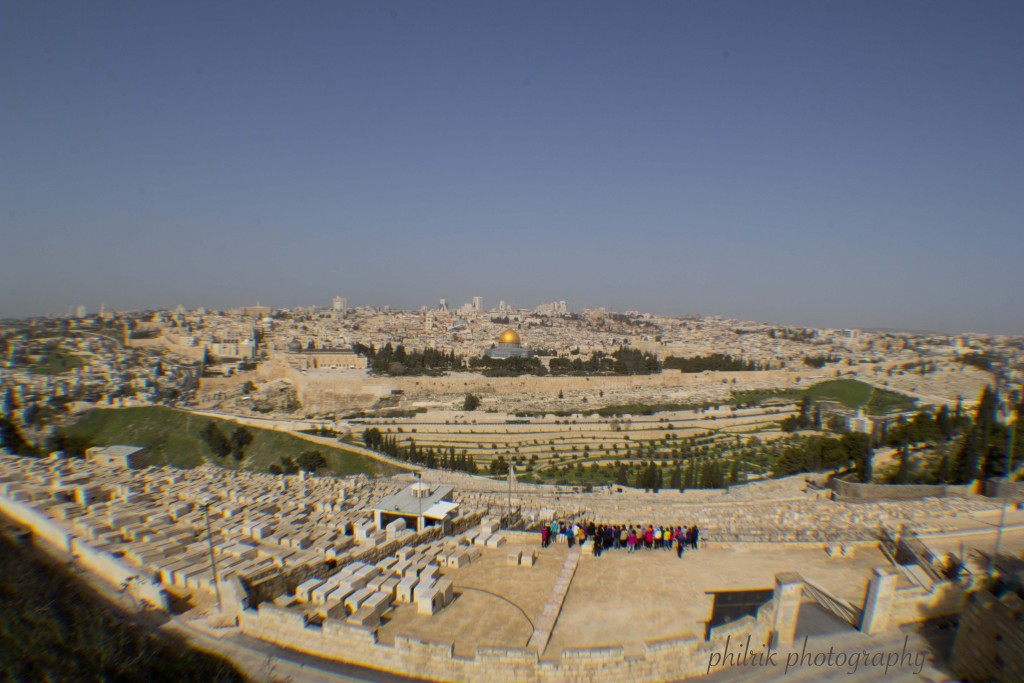
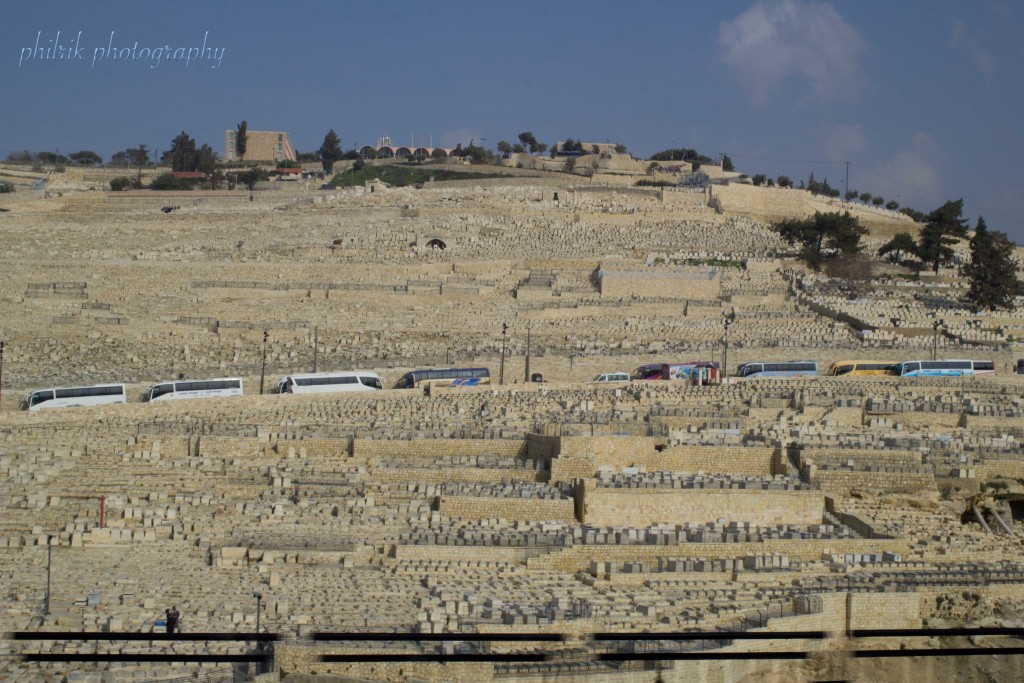
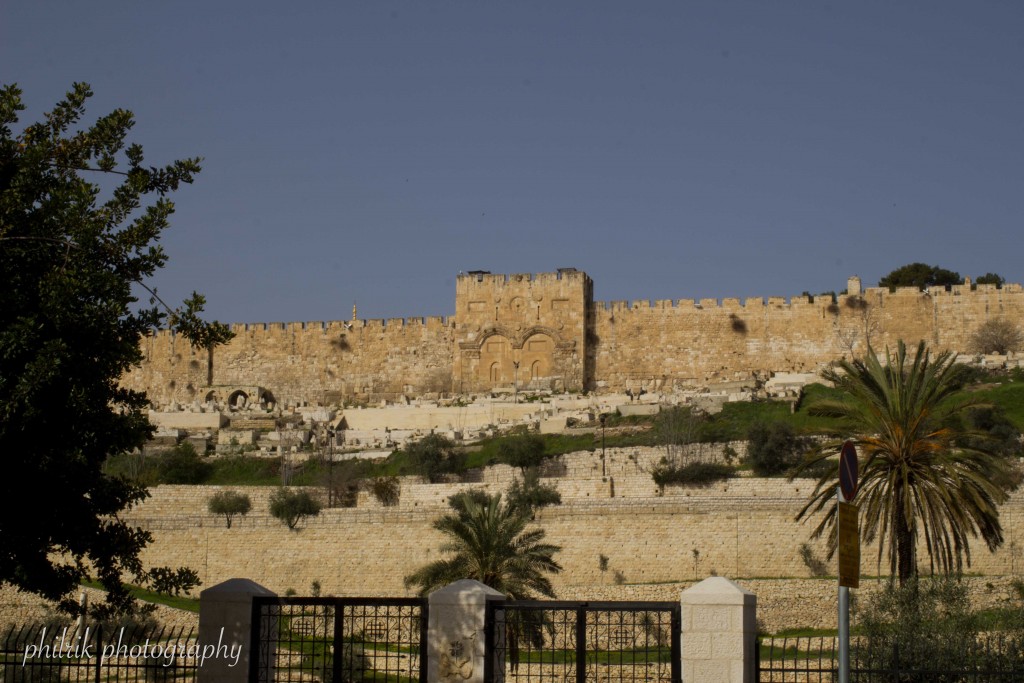
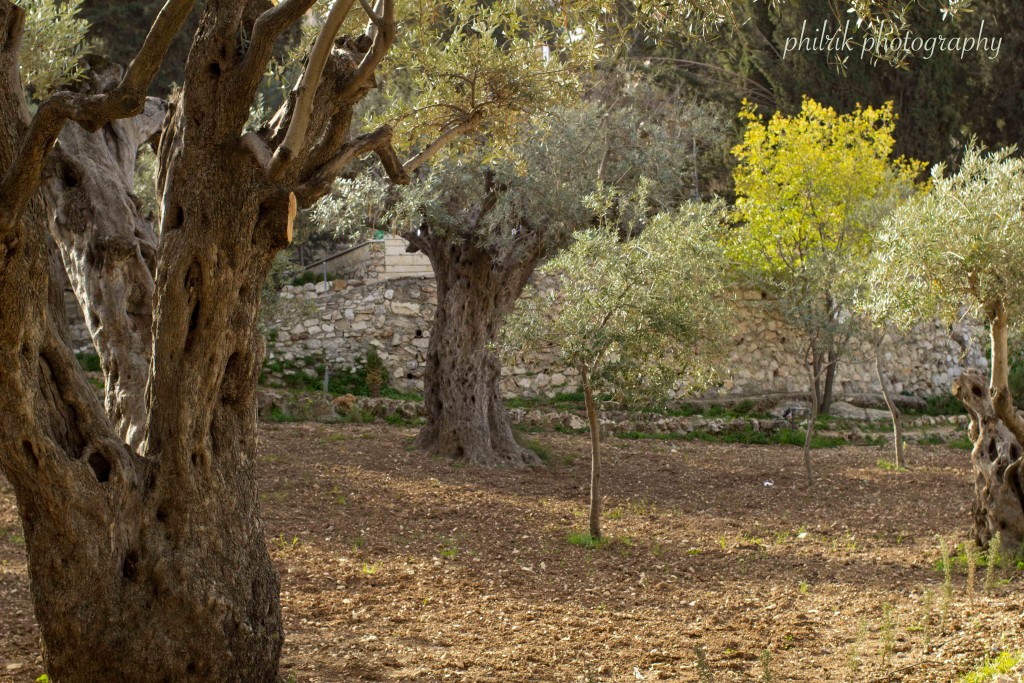
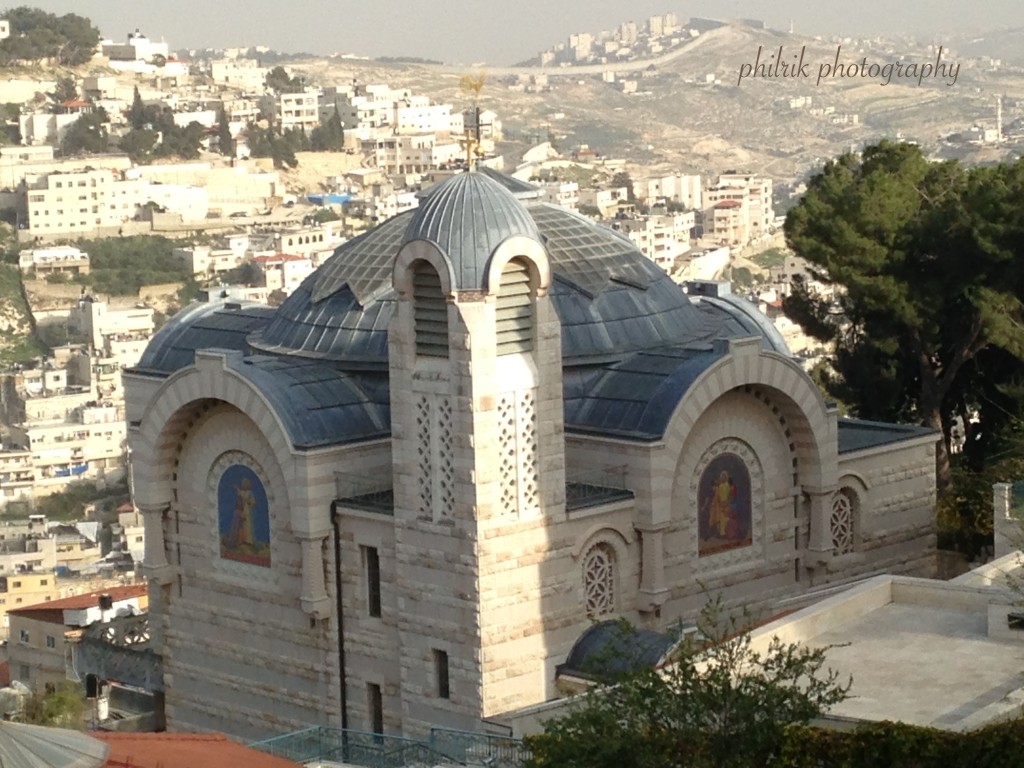
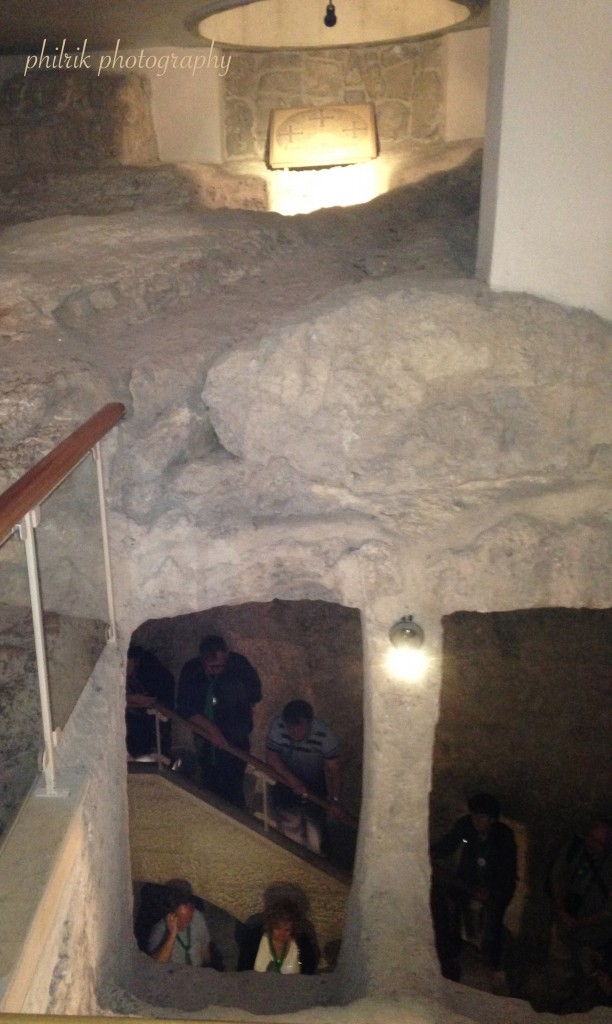
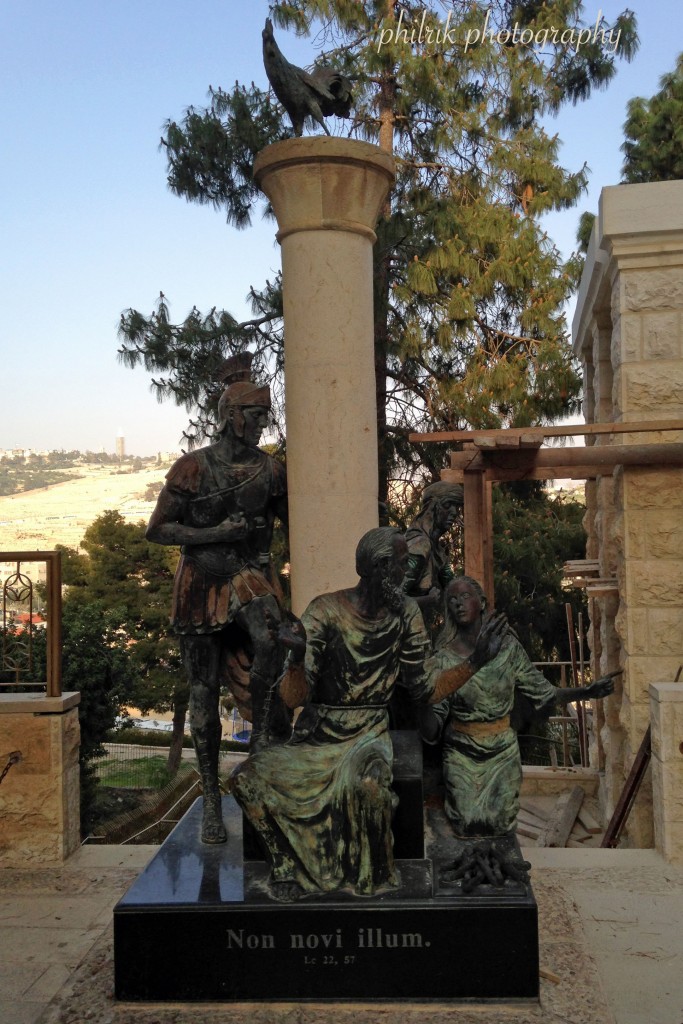
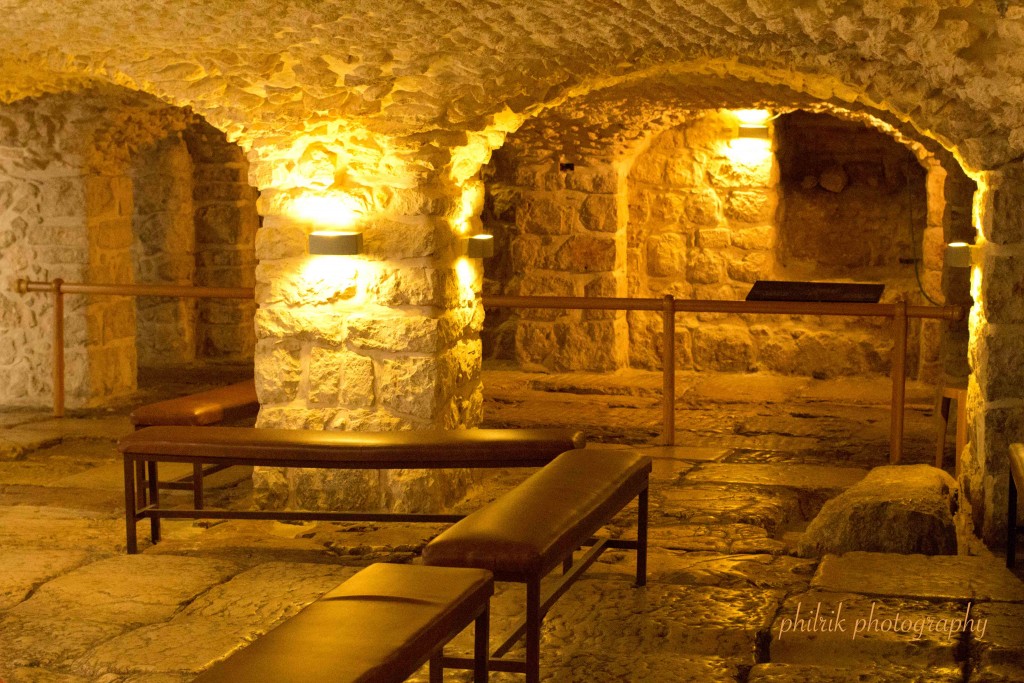
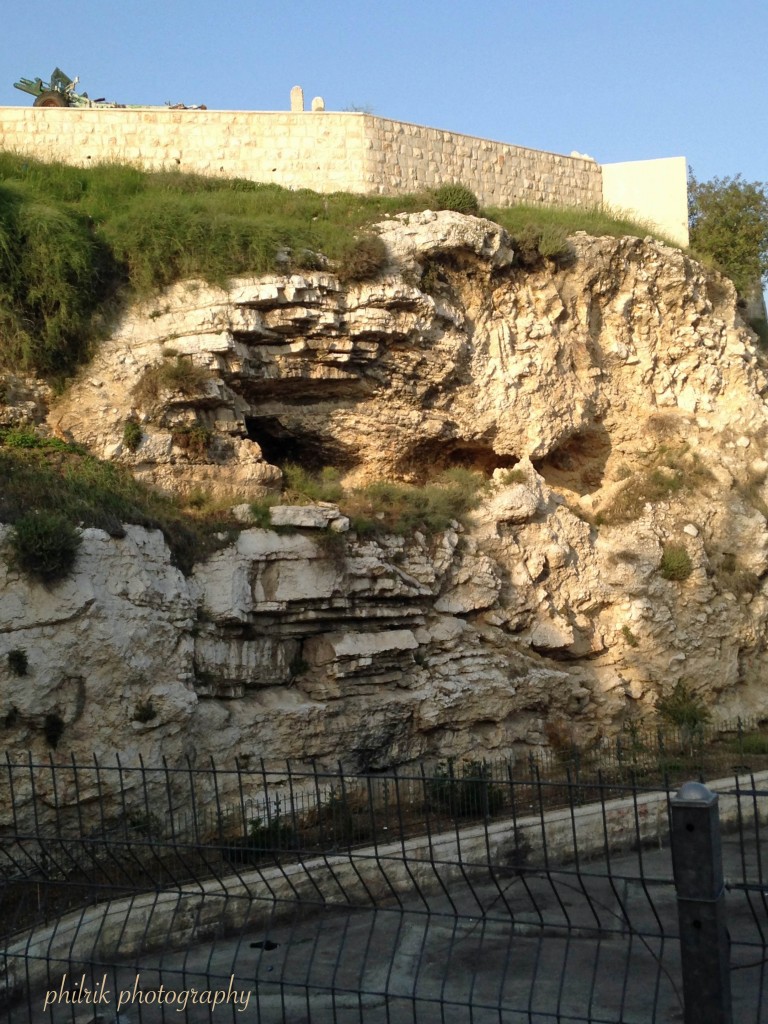
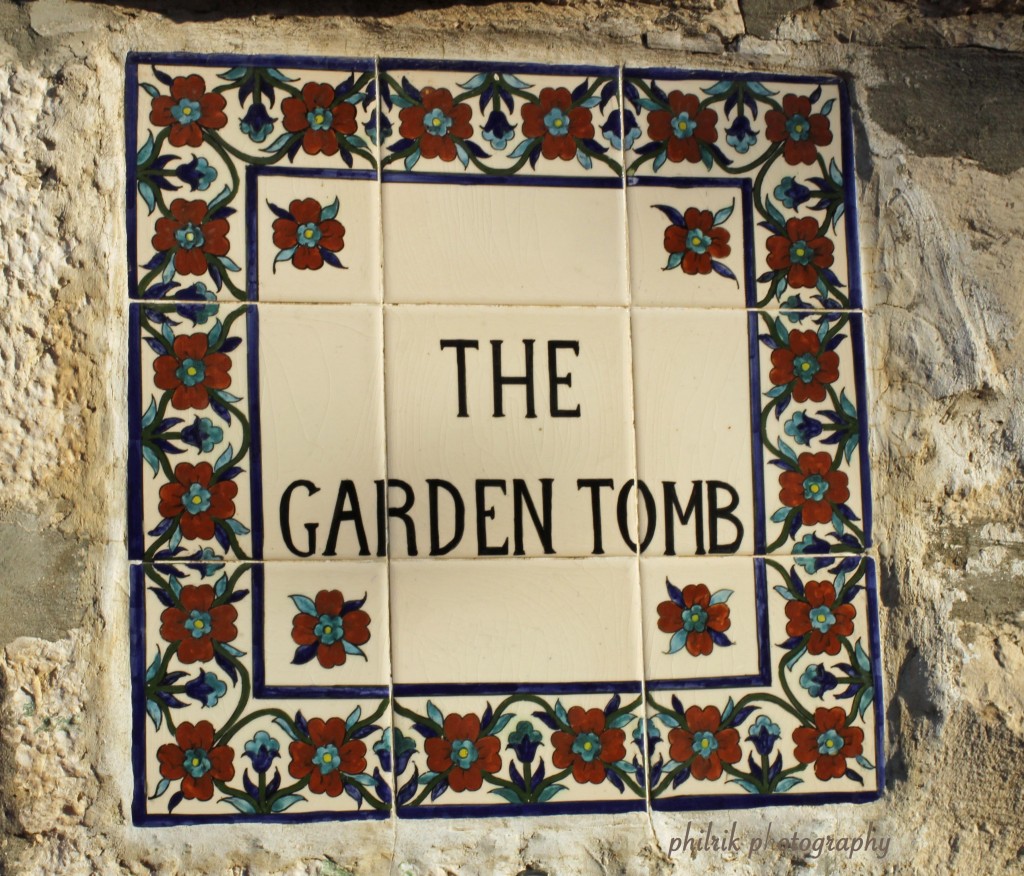
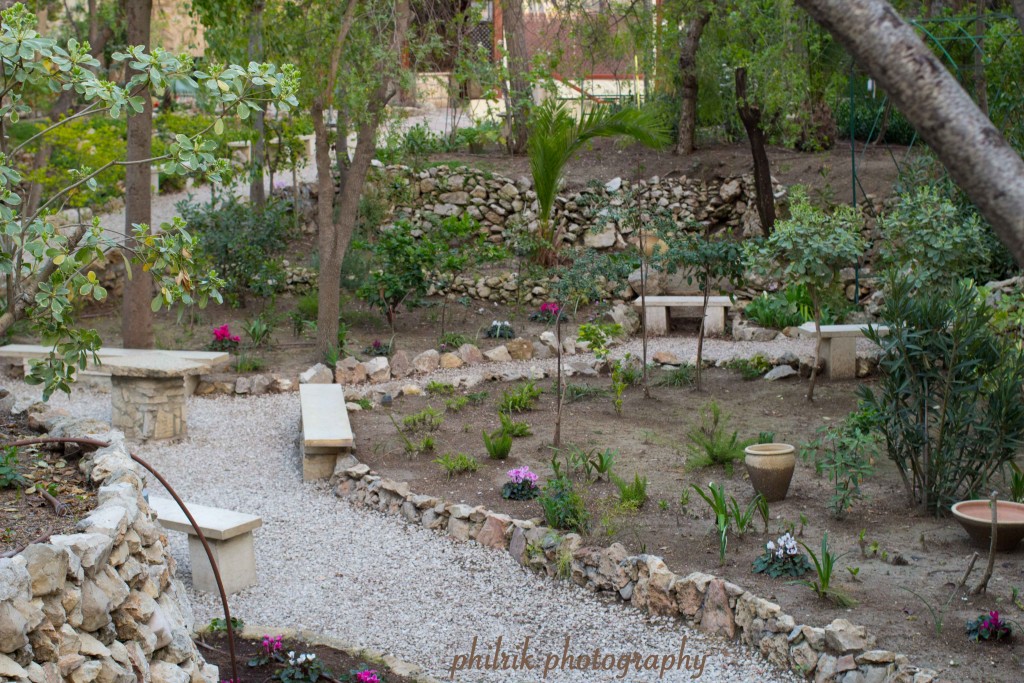
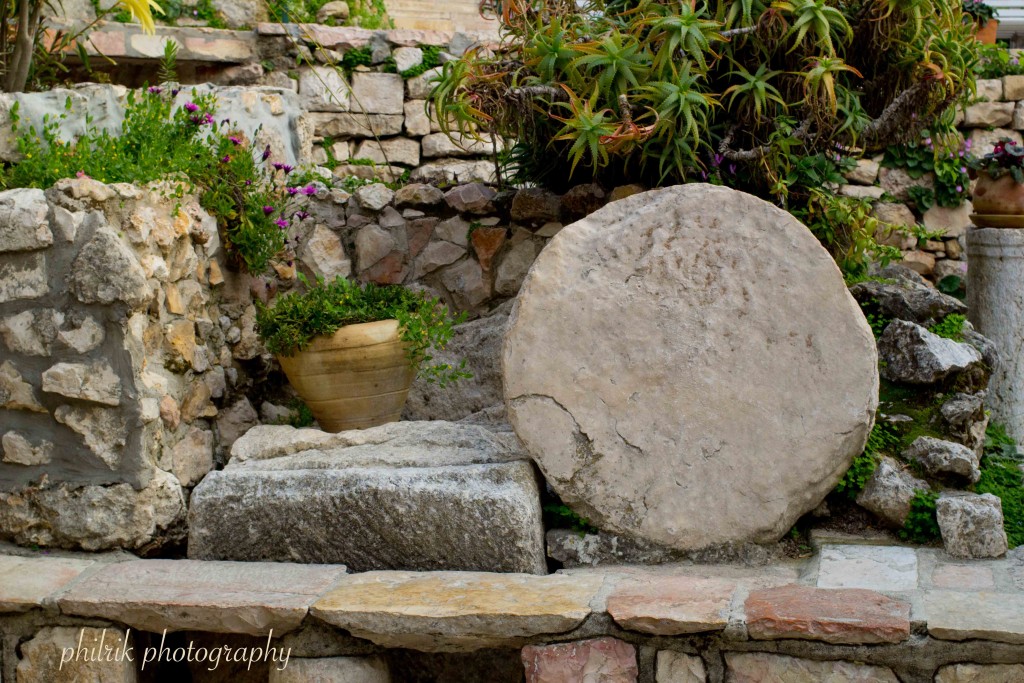
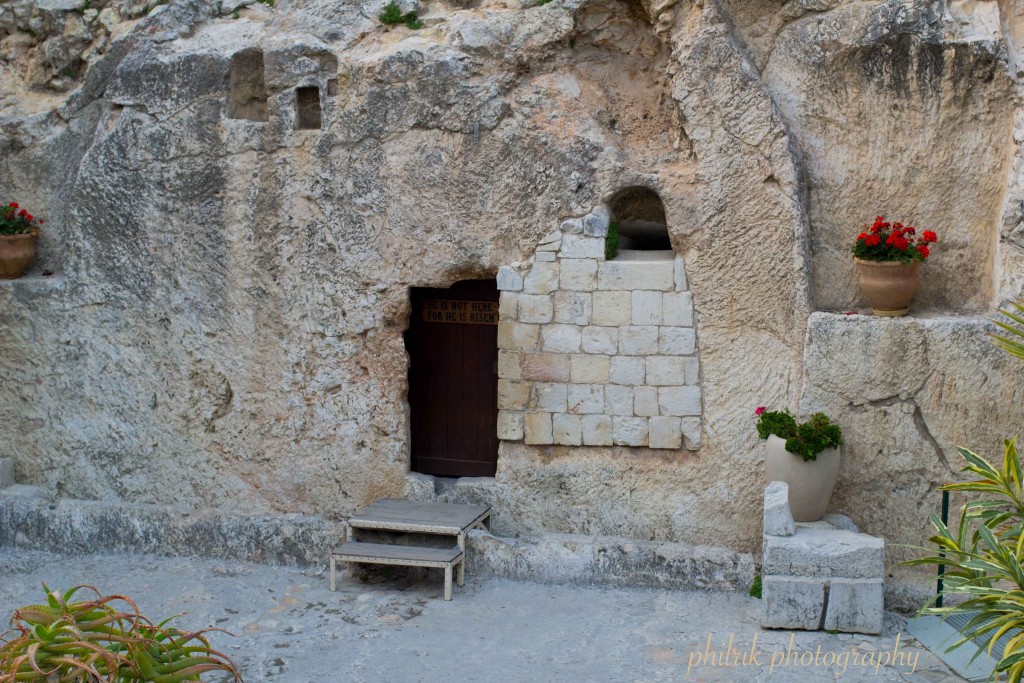
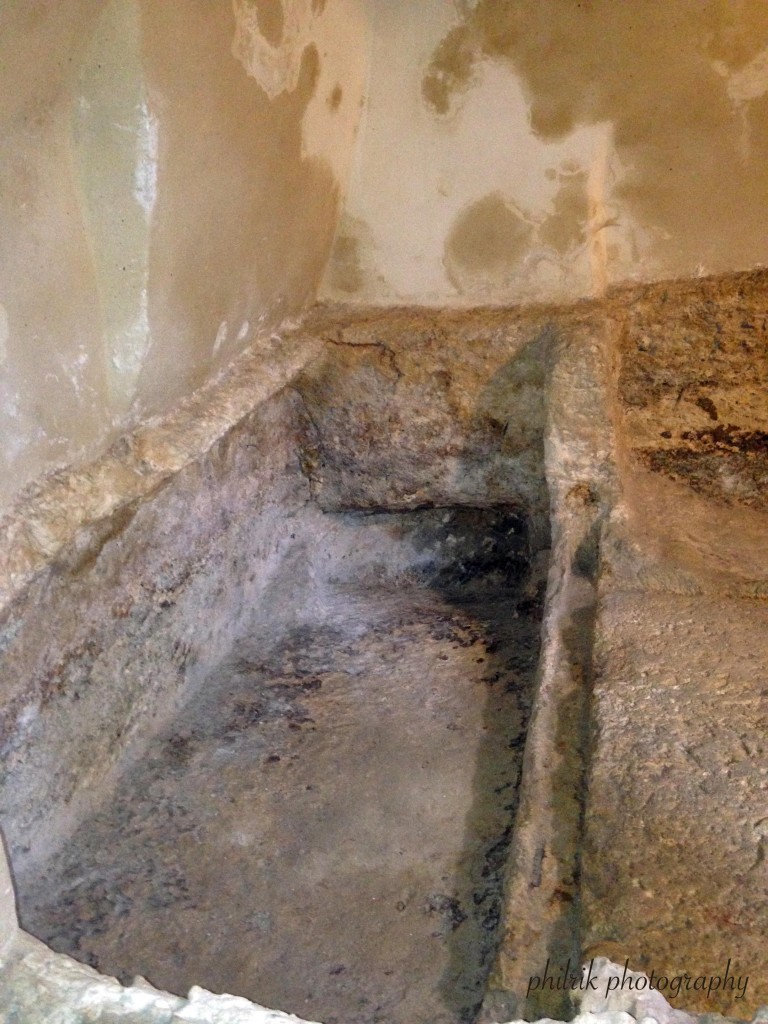
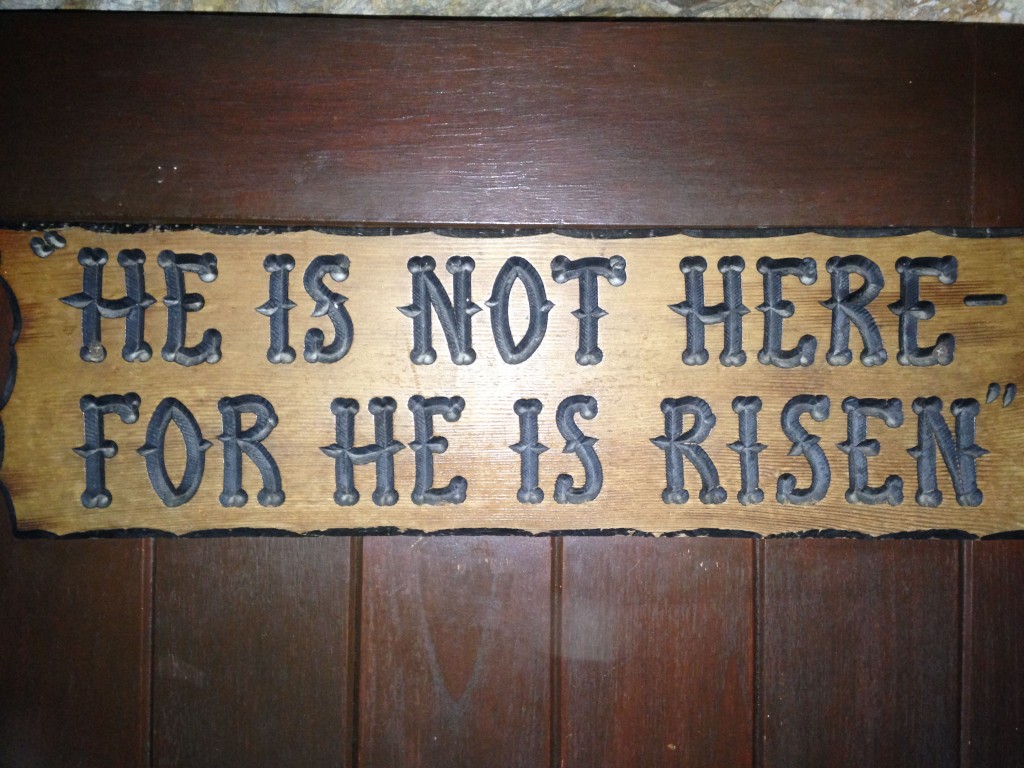
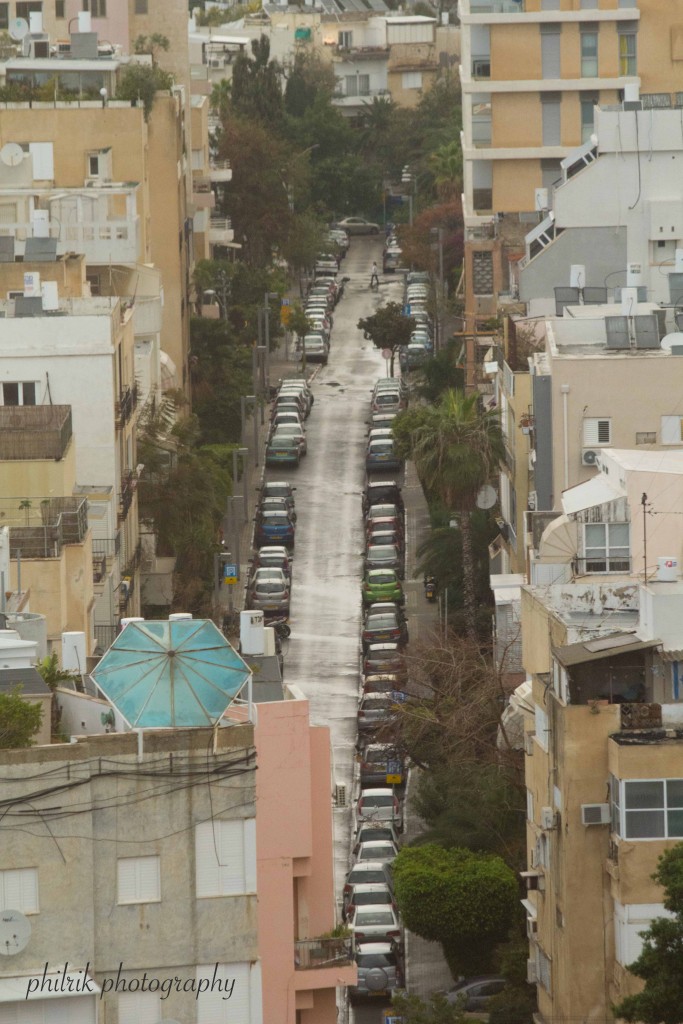
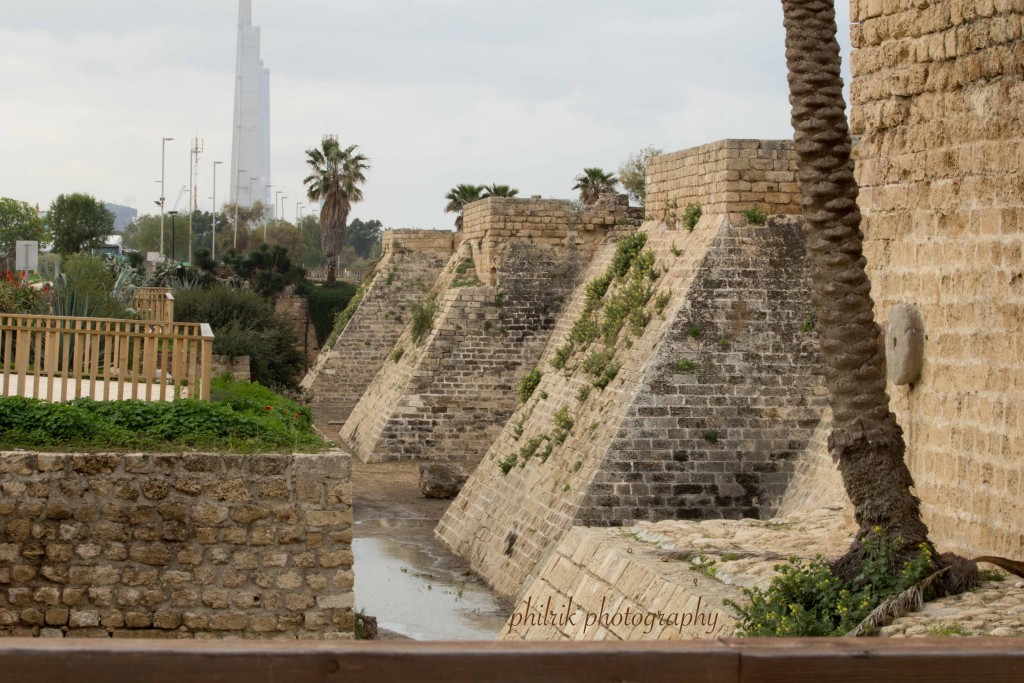
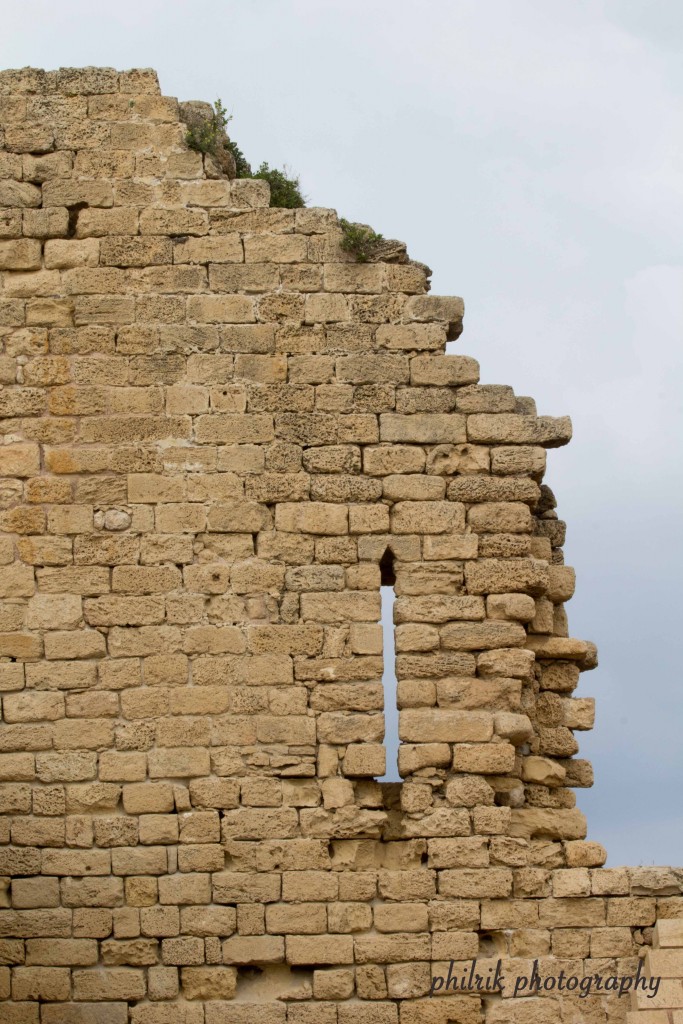
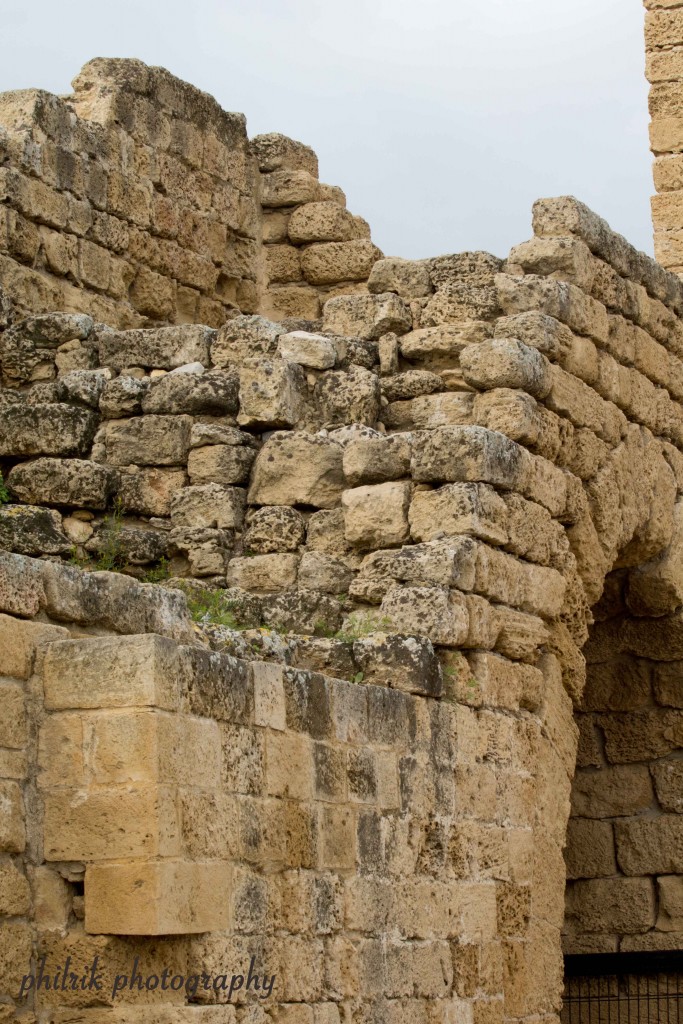
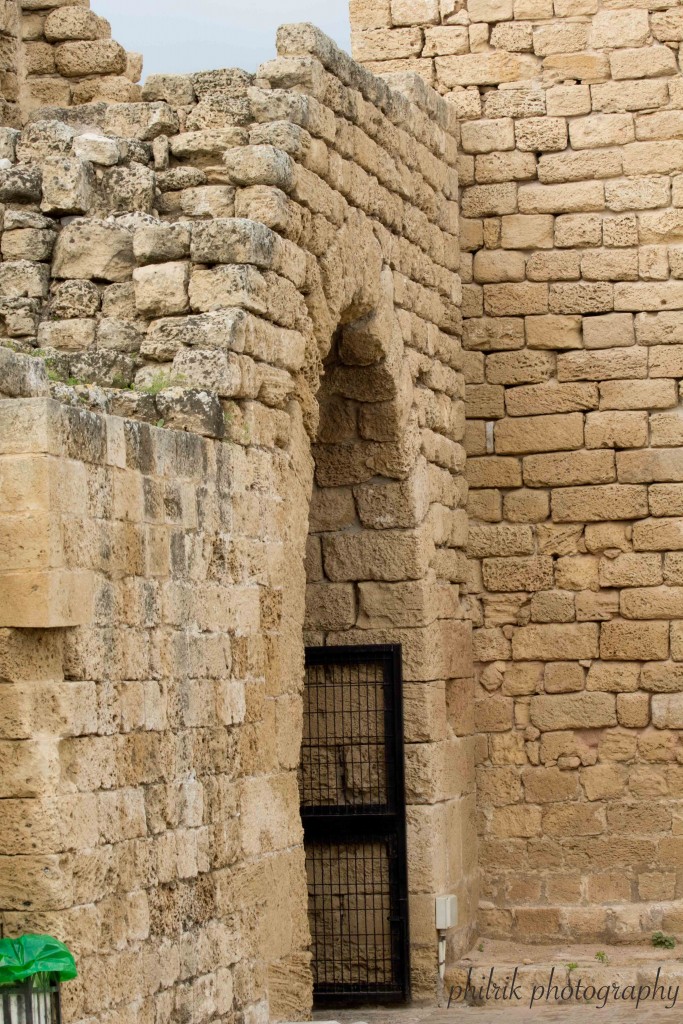
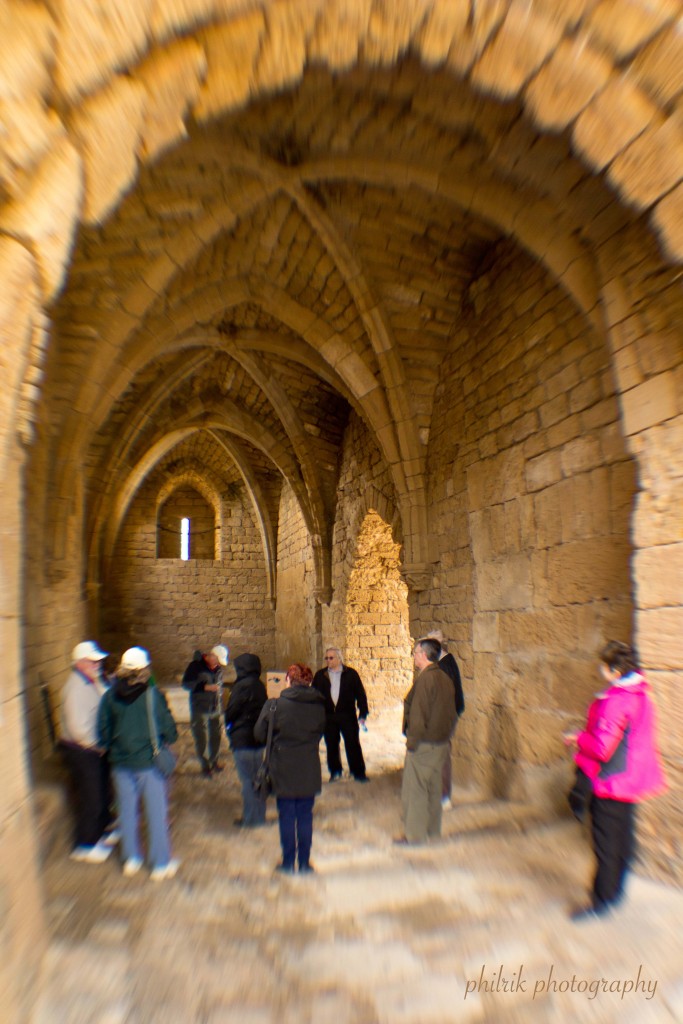
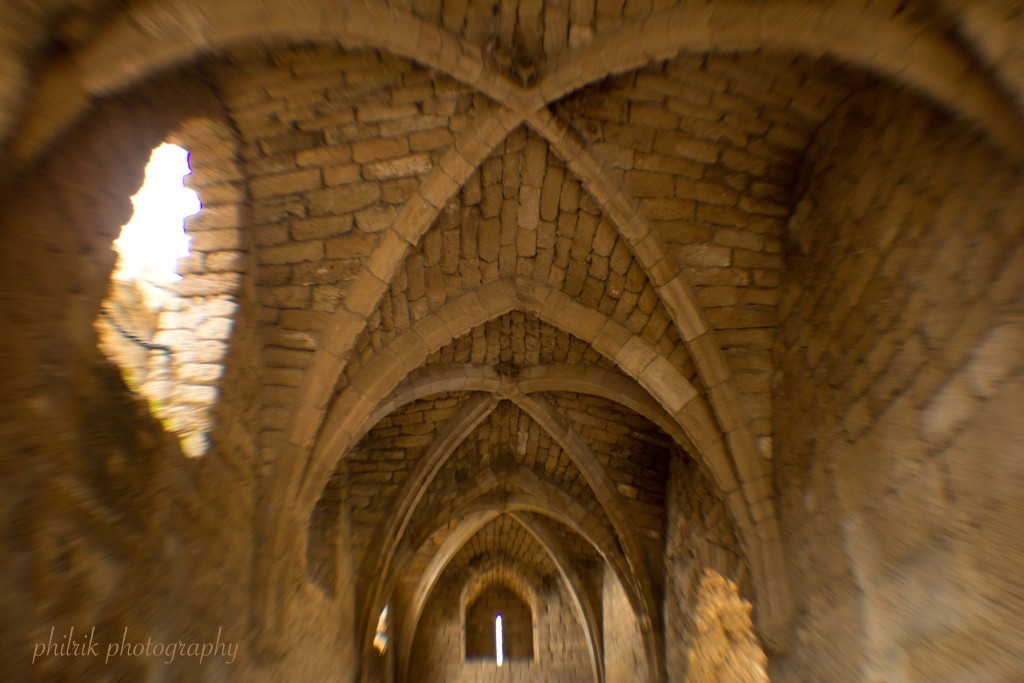
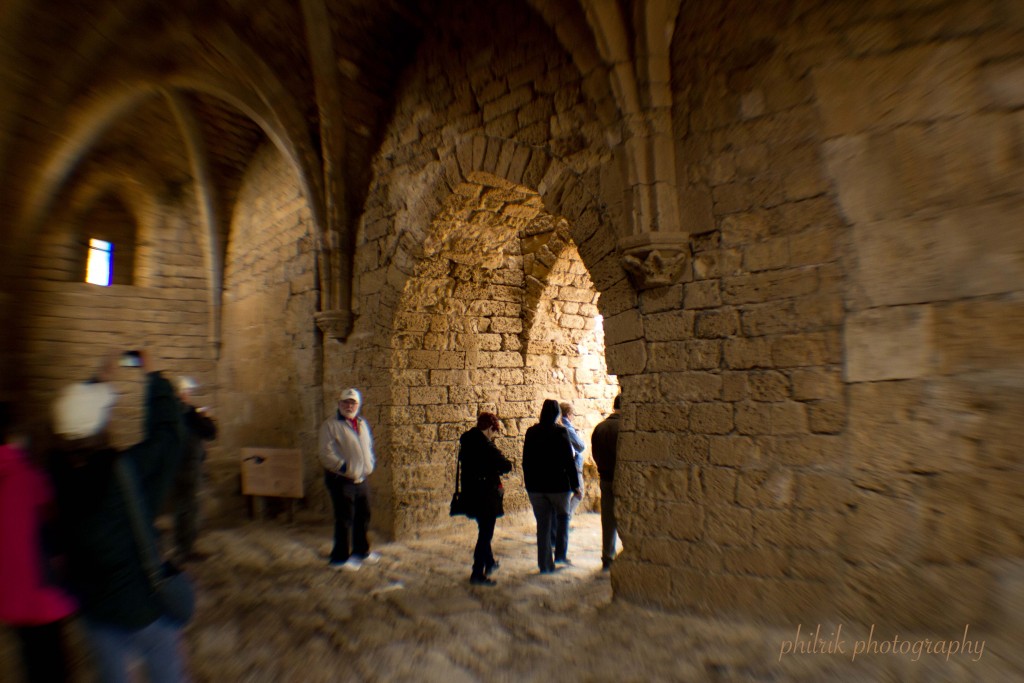
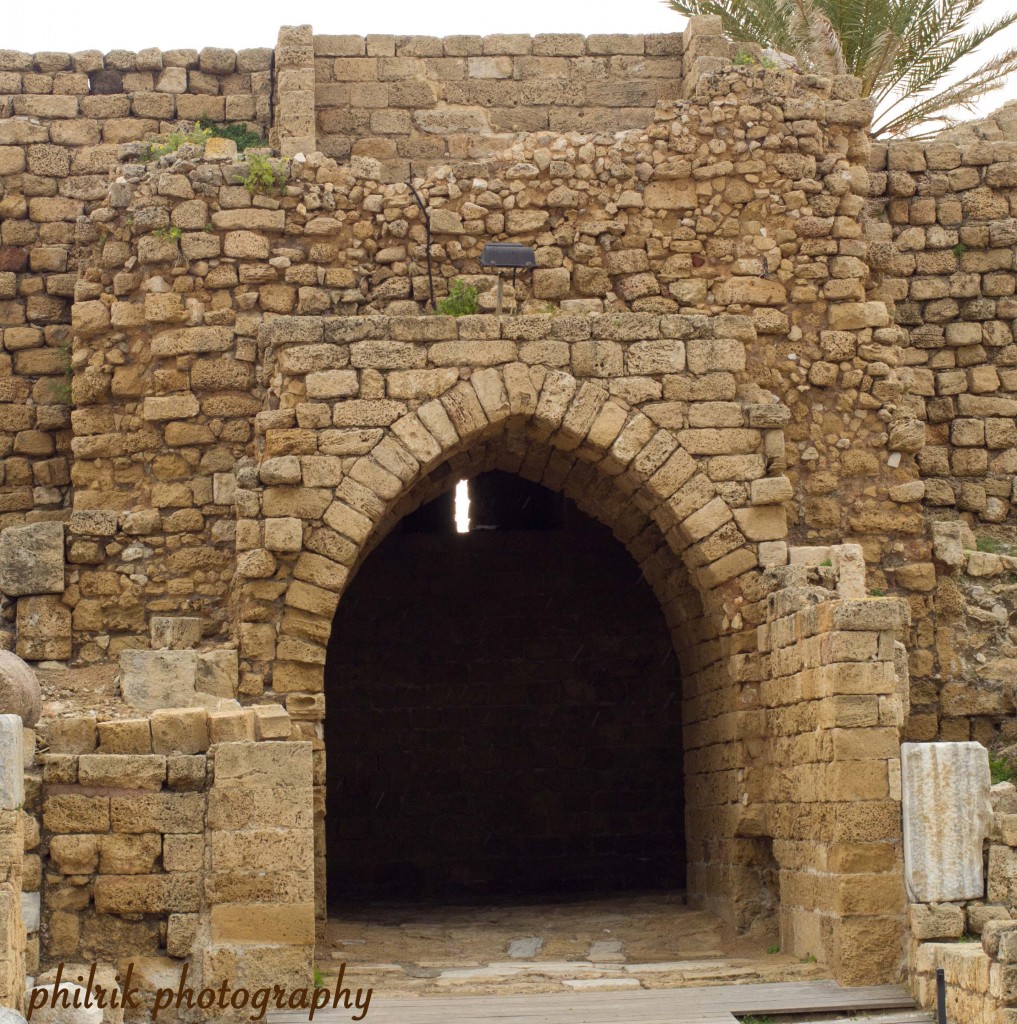
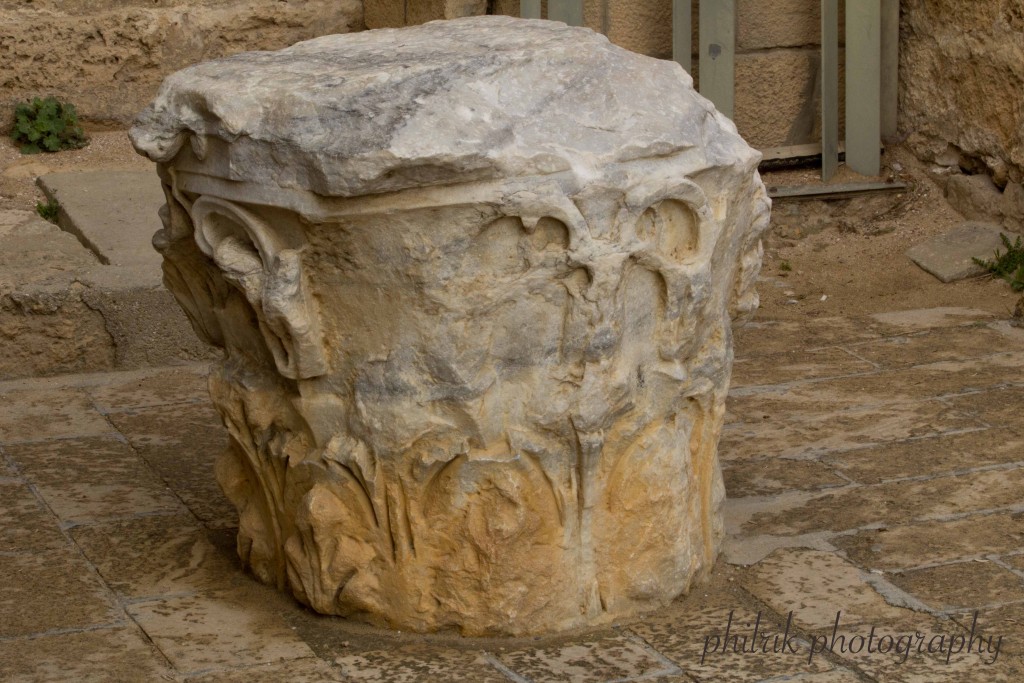
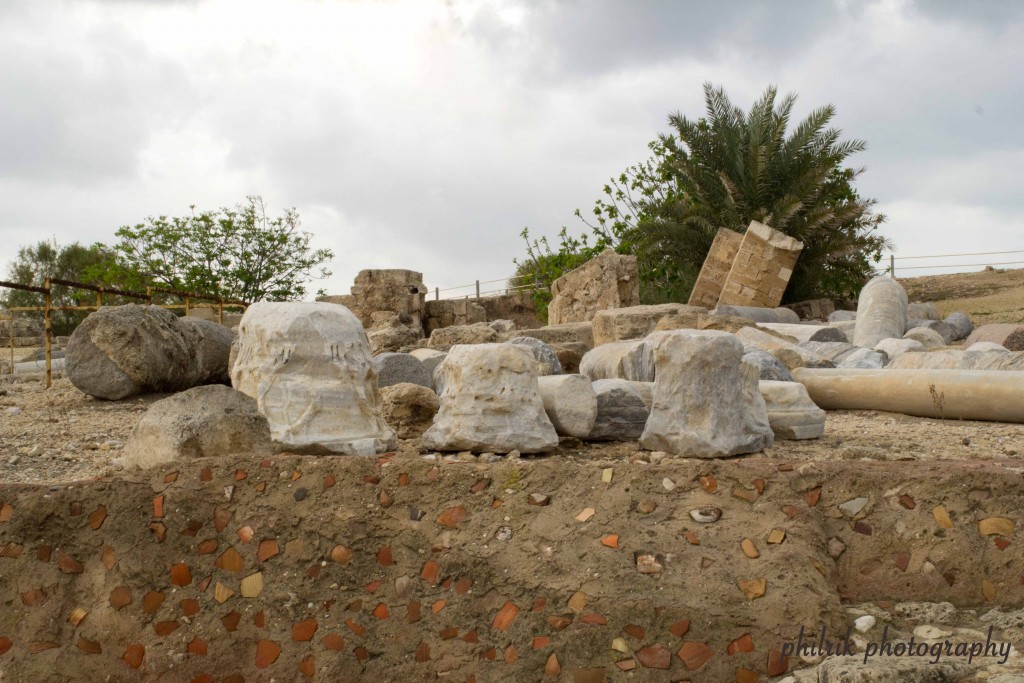
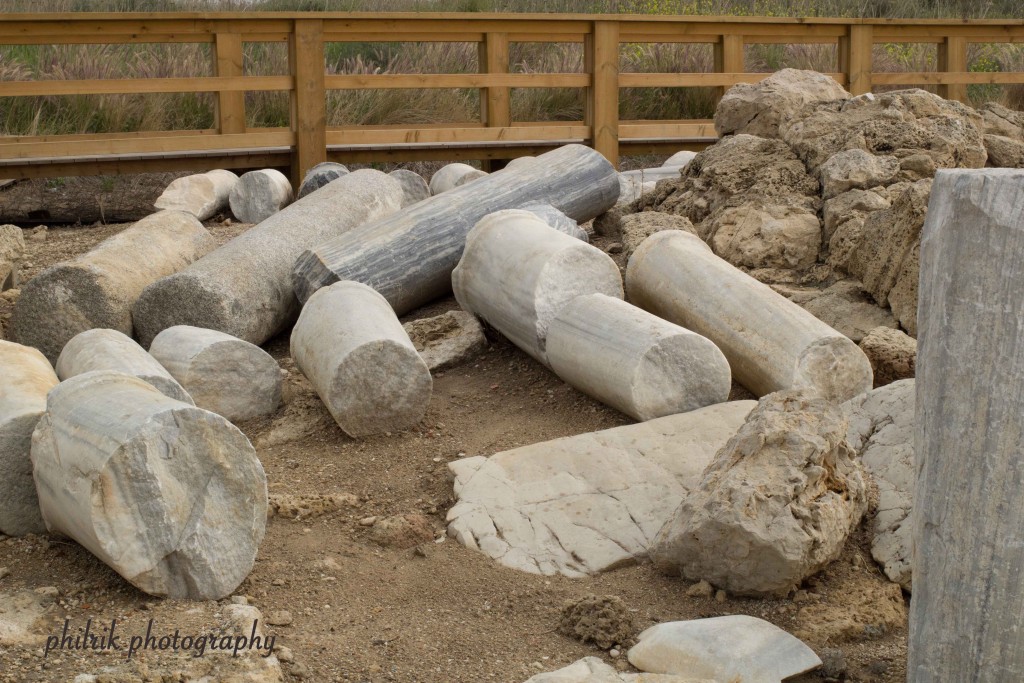
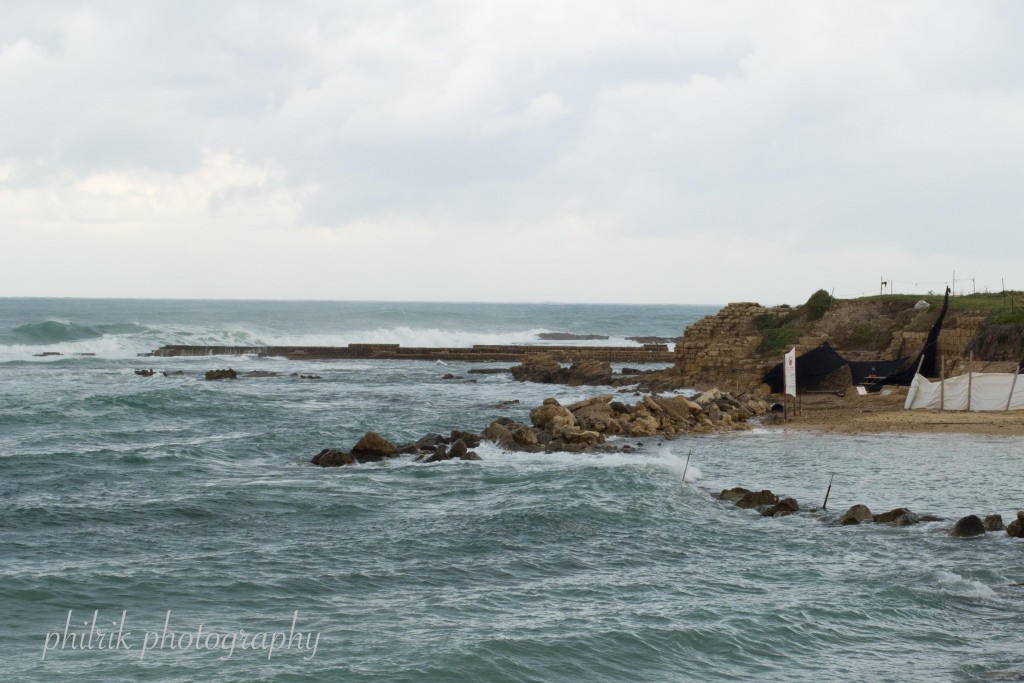 The south side of the harbor holds new construction on top of the remains of a Crusader tower that was built on the remains of the Roman harbor.
The south side of the harbor holds new construction on top of the remains of a Crusader tower that was built on the remains of the Roman harbor.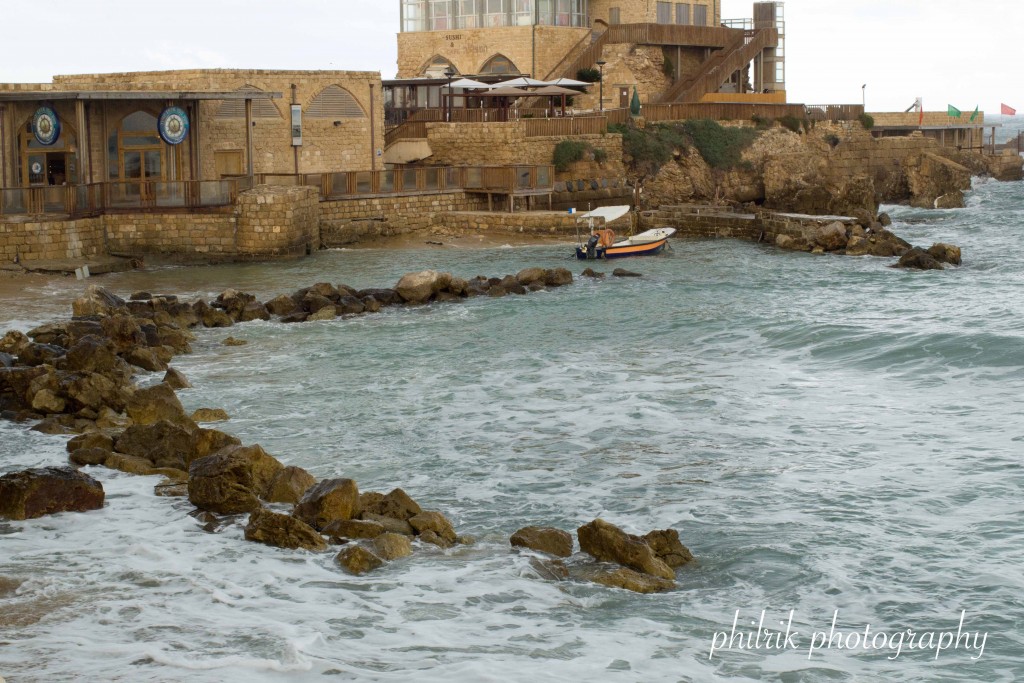
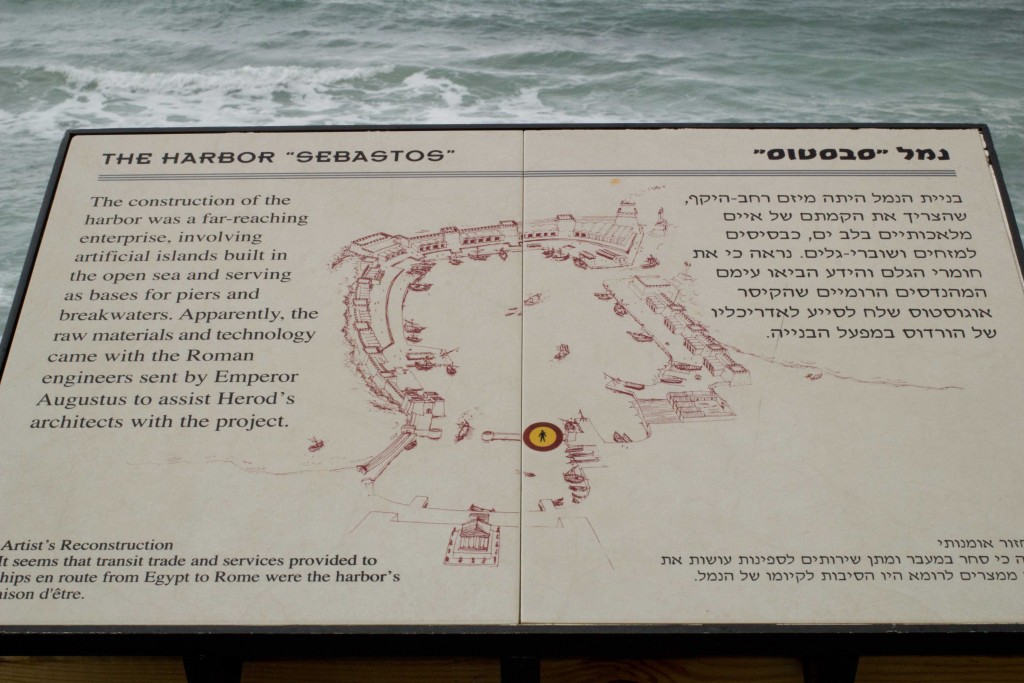
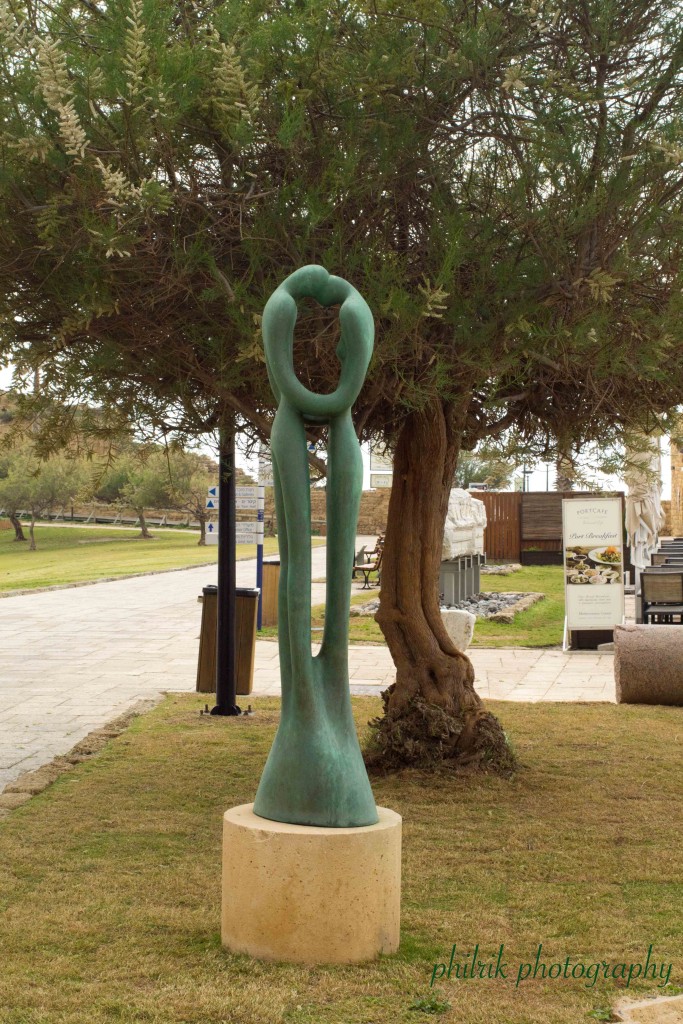
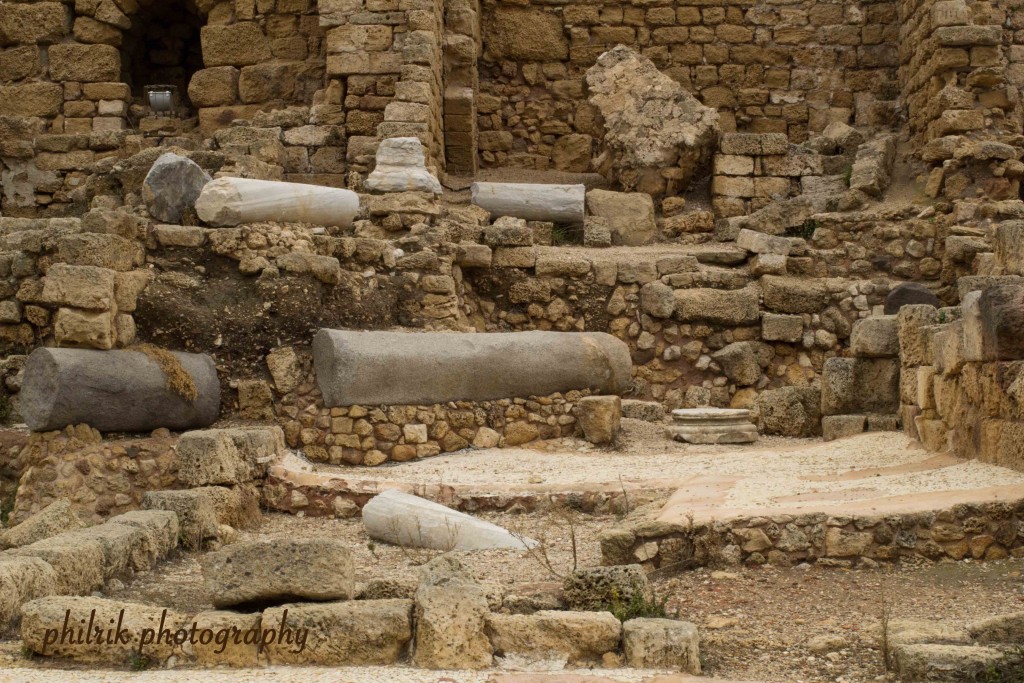
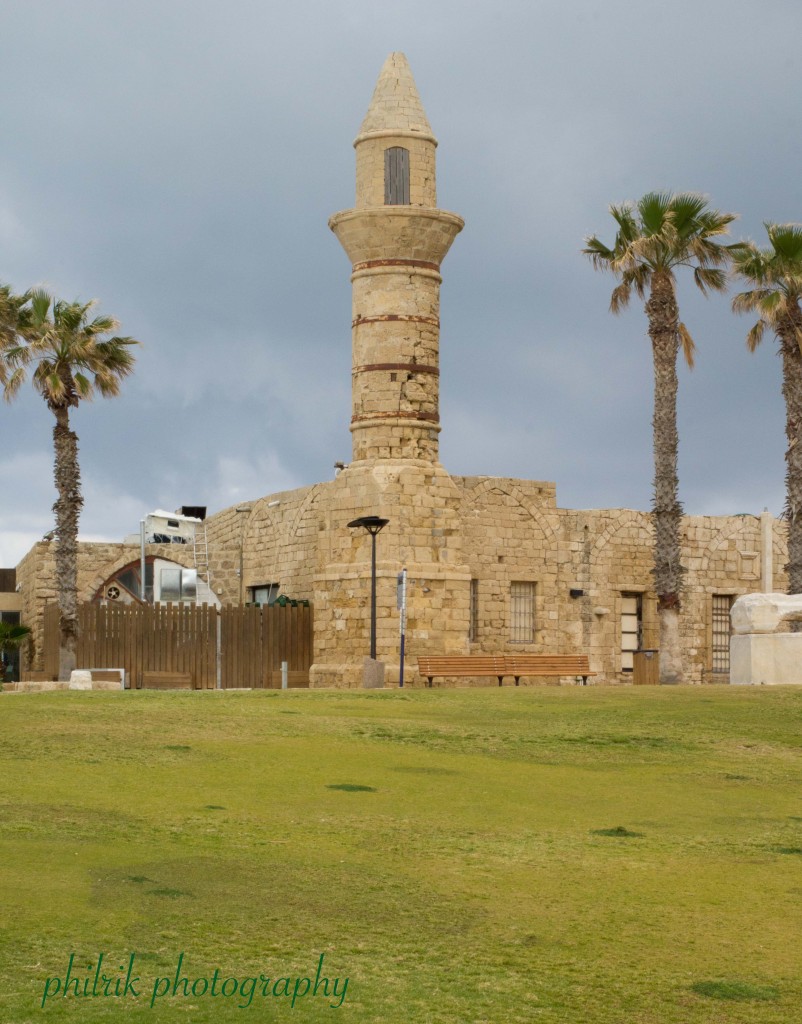
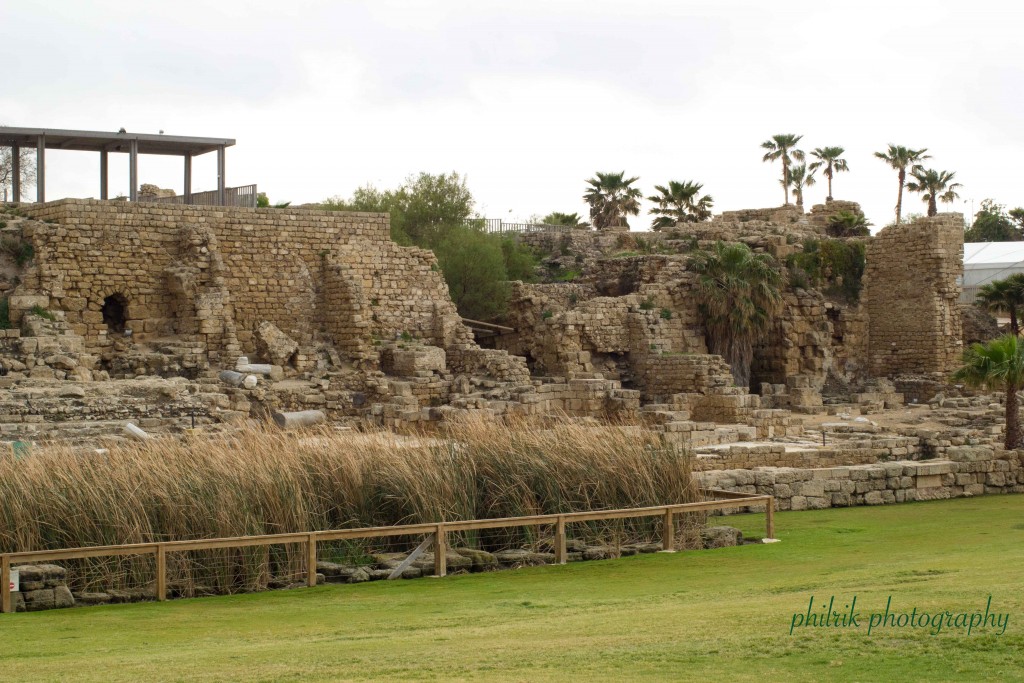
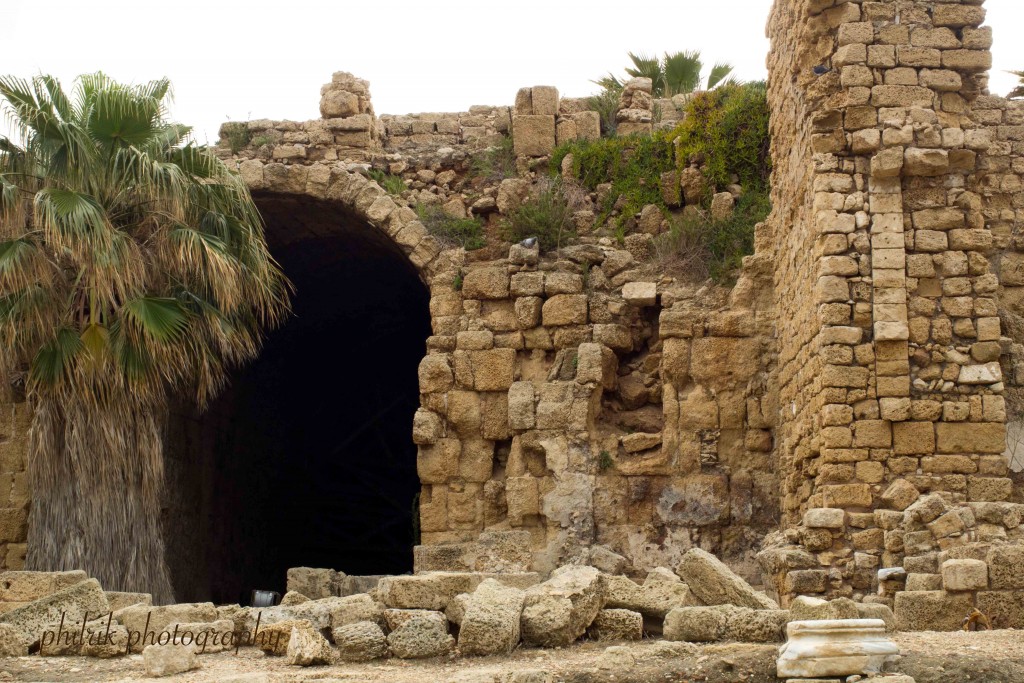 It ushers us into the layers of Roman construction, with all its fabulous arches.
It ushers us into the layers of Roman construction, with all its fabulous arches.